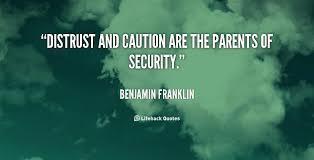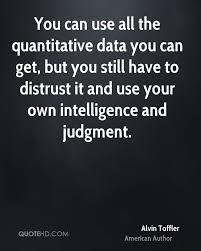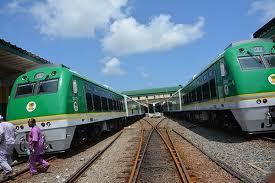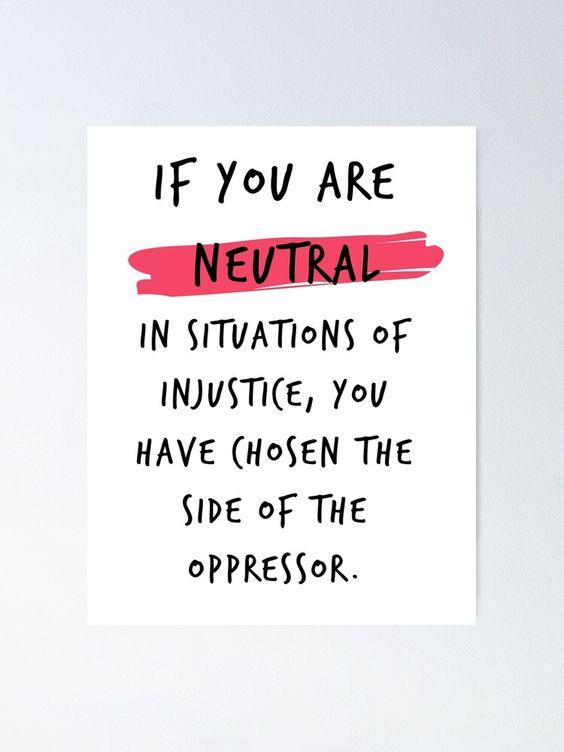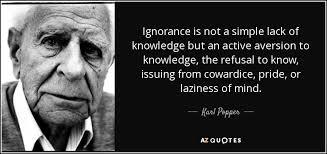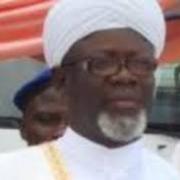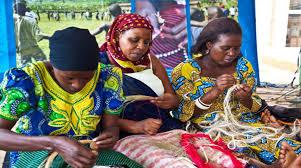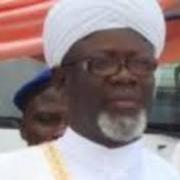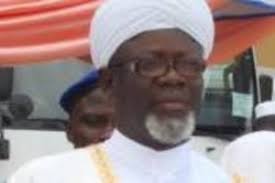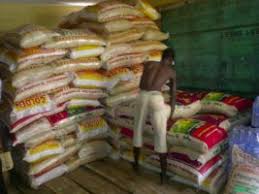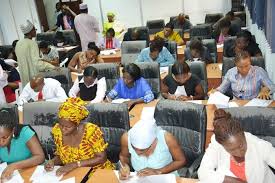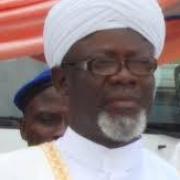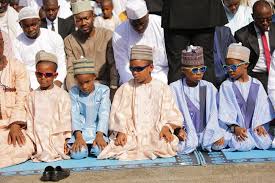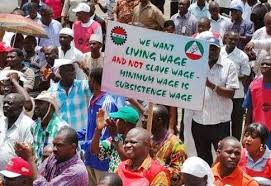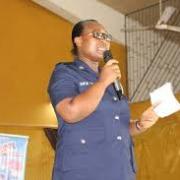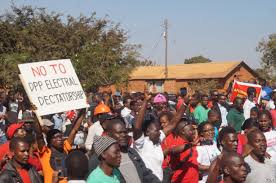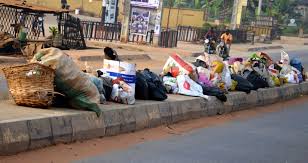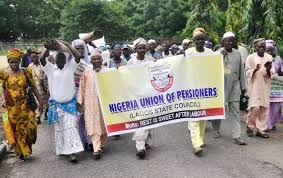The National Industrial Court delivered judgment on the leadership crisis in the Association of Senior Civil Servants of Nigeria (ASCSN). However, members of the association are curious to know the details below:
Start earning today
IN THE NATIONAL INDUSTRIAL COURT OF NIGERIA
IN THE ABUJA JUDICIAL DIVISION
HOLDEN IN ABUJA
BEFORE HIS LORDSHIP: HON. JUSTICE 0.0. OYEWUMI
DATE: 9TH JULY, 2024
BETWEEN
COMRADE INNOCENT BOLA-AUDU
SUIT NO: NICN/ABJ/341/2023
AND
1. ASSOCIATION OF SENIOR CIVIL SERVANT OF
NIGERIA (ASCSN)
2. MR. ALADE BASHIR LAWAL
3. MR. TONY ETIM OKON
CLAIMANT
DEFENDANTS
REPRESENTATIONS
Babatunde Adewusi Esq with Oyindamola Bamidele Esq and Precious Patient Eze-ewere Esq for Claimant
Johnson O. Esezoobo Esq with M. M. Ayinla Esq for Defendants
JUDGMENT
1. This action was commenced by a General Form of Complaint filed on the 13" day of July, 2022, wherein Claimant prays the Court for the following
viz:
1. A DECLARATION that the Claimant is the lawful substantive
National President of the 1' Defendant.
NATIONAL INDUSTRIAL COURT
1
OF NIGERIA, ABUJA
CERTIFIED TRUE COR
3
2. AN ORDER of the Honourable Court mandating the 1" Defendant
and all its organs to unconditional reinstate the Claimant back to his elected position as National President of the 15 Defendant with immediate effect.
3. AN ORDER of the Honourable Court mandating the 1" Defendant, its agents and privies to ensure that the Claimant serve out his elected tenure of four years without any interruption.
4. A DECLARATION that the emergency meeting of the CWC requisitioned by the 2nd Defendant and held in Lagos on the 9th of March 2021 which purportedly reached a decision that the Claimant should step aside and appointed the 3" Defendant as the Acting President to replace the Claimant is irregular, unlawful illegal void ultra-vires its powers and in contravention of the Constitution of the 1" Defendant.
5. A DECLARATION that the purported resolution passed by the CWC for the appointment or selection of the 3rd Defendant, sic (as acting President) is irregular, unlawful illegal void and ultra-vires its powers and in contravention of the Constitution of the 1s Defendant.
6. A DECLARATION that the Claimant did not violate the Constitution of the 1 Defendant nor have been found guilty of any criminal charge by NAPTIP to warrant the purported decision taken by the 1* Defendant's CWC.
7. A DECLARATION that the incidence deliberations and decision of the emergency NEC meeting held on the 16th of March 2021 which sought to affirm the decision of the CWC of the 9th of March 2021 asking the Claimant to step aside from his office as National President of the Defendant is irregular, unlawful, illegal unlawful void ultra-vires its powers in contravention of the Constitution of the 1a Defendant and in contravention of the order of the Honourable for parties to maintain status quo.
8. A DECLARATION that the incidence deliberations and decisions of the emergency NEC meeting held on Monday the 16th of August 2021 and Tuesday 17th August 2021 which sought to expel the Claimant from membership of the 1 Defendant is irregular, unlawful, illegal void and ultra-vires its powers in contravention of
NATIONAL INDUSTRIAL COURT OF NIGERIA, ABUJA
CERTIFIED TRUE COPY
2
3
55/2
NATIONAL INDUSTRIAL COURT OF NIGERIA, ABUJA
CERTIFIED TRUE COPY
the Constitution of the 1st Defendant of the Order of the Honourable Court for parties to maintain status quo.
9. A DECLARATION that the 3rd Defendant has retired from the
Civil Service and no longer a member of the 1" Defendant. 10. A DECLARATION that by the continued stay in office of the 3rd defendant is unlawful, contrary to public policy, equity and the Constitution of the 1" Defendant.
11.AN ORDER of the Honourable Court Directing the 3rd Defendant to vacate the office of the National President of the 1s Defendant with immediate effect.
12.An injunction restraining the Defendants, agents, privies and representatives from interfering with the lawful business of the Claimant as the National President of the 1" Defendant.
13.The sum of N3, 000, 000.00 (Three Million Naira) only being the cost incurred by the Claimant for bringing of thus suit against the Defendants.
2. The case of the Claimant is that he was arrested and detained by National Agency for Prohibition of Trafficking (NAPTIP) and while in detention the 2nd defendant requisitioned an emergency meeting of the 1 defendant's Central Working Committee(CWC); where it was resolved that he step aside as the President pending the resolution of all criminal related issues brought against him by NAPTIP and appointed the 3 defendant as the Acting President and that the resolution is irregular, unlawful illegal void and ultra- vires its powers and in contravention of the Constitution of the 1" defendant. According to him he approached the Court to enforce his fundamental human rights and the Court made an order that parties should maintain status quo. That in flagrant disregard and disobedience to the order of Court, the National Executive Council of the 1" defendant eventually removed him as President illegally. He was subsequently expelled from membership of the 1 defendant illegally. Hence this suit.
3. The defendants in response filed their joint statement of defence which was amended wherein they admitted that the Claimant was National President of the defendant but was suspended and subsequently expelled from the Association. That the 2 defendant duly retired from service having attained retirement age but was thereafter appointed on contract for one year three
3
8
NATIUNAL INDUSTRIAL COURT OF NIGERIA, ABUJA
CERTIFIED TRU
months by NEC of the 1st defendant in accordance with the Conditions of service. They further averred that after the CWC of the 1st defendant examined the issue of arrest/detention of the Claimant, he was asked to step aside as President for the 3"" defendant to act as President. They also averred that the defendants did not act unlawfully in every step taken to suspend the Claimant and subsequently expelled him and that same being an internal affair, the Court has no jurisdiction to look into it. They maintained that this action ought to be dismissed.
4. Claimant opened his case by calling one Solomon Onaghinon who testified as CW1, he adopted his written statement on Oath dated 6/2/23. He was cross-examined by learned defence counsel and a document which was admitted and marked as Exhibit S was tendered through him under cross examination. One Lauretta Chinyem Amarachi equally testified as CW2 by adopting her written statement on oath of 6/2/23 as her oral evidence and was subsequently cross examined by the defence counsel. One Comrade Abba Hassan testified as CW3 by adopting his written statement on oath of 13/7/2022. He was equally cross-examined by the defendants and document admitted and marked as Exhibit Abba was tendered through him. Claimant testified as CW4 by adopting his witness statement on oath of 13/7/22 and 28/4/23 as his oral evidence and documents admitted and marked as Exhibit B1-B20 were tendered through him in his examination in chief. He was also cross examined by the learned defence counsel who tendered exhibits B21- 1324 through him. The defendants opened their case by calling one Comrade Bobboi Bala Kaigama who testified as DWI. He also adopted his written statement on 20/2/23 as her evidence in this case, Ile was subsequently cross-examined by the Claimant. The 2 defendant testified as DW2. He equally adopted his written statement on oath of 29/7/22 as his evidence in this case. Documents admitted and marked as Exhibit L-1.7 were tendered through him by the defendants. Ile was later crossed examined by the Claimant's counsel while document marked as Exhibit 1.8 was tendered through him by the Claimant.
5. After an in-depth and a careful consideration of the processes filed in this case, the submission of learned counsel to both parties and the authorities cited in support of their respective arguments, it is in the light of all this that I frame these issues for the just determination of this suit.
4
3
NATIONAL INDUSTRIAL GOUNI OF NIGERIA, ABUJA
CERTIFIED TRUE COPY
1. Whether this Court is clothed with jurisdiction to entertain
Claimant's case?
2. Whether the Claimant can amend his process as he sought to do
in the Motion filed on 12/4/2024.
3. Whether the Claimant has proved his claims to be entitled to the
reliefs sought?
6. With regards to issue one, it is the contention of learned counsel for the defendants that Claimant did not comply with the provisions of Rule 40(a) and (b) of the 1st defendant's constitution which is a condition precedent to the institution of this action. According to him the rule provides a pre- condition that a Claimant as a member of the union must first comply with before approaching the Court and that failure to comply with the said pre- condition ought to oust this Court of its jurisdiction. He cited in support of his assertion the cases of Haladu v. Access Bank [2021] 13 NWLR (Pt. 1974) 434 @@ 458-459; Atolagbe v. Awumi [1997] 9 NWLR (Pt. 522) 536; Waziri v. PDP [2023] 7 NWLR (Pt. 1882) 57 @ 103-104; Oyewo v. Governor of Ekiti State [2023] 17 NWLR (Pt. 1912) 47 @ 68-69; Governor of Imo State v. Amuzie (2019) 10 NWLR (Pt. 1680) 331 @ 348-349. Learned Claimant's counsel on his own part submitted that the Court has the requisite jurisdiction to entertain and determine the issues submitted by the Claimant for determination in this suit, Ile stressed that the technical objection raised by the defendants are misconceived iterating that the days of technicalities are long gone embracing the current vogue of doing substantial justice to both parties in that cases are heard and determined on merit. He cited in support of his assertion the case of Bello v. Attorney General Oyo State [1986] 12 SC and Fawehinmi v. Akilu [1989] 3 NWLR (Pt.112) 643. It is the position of Claimants' counsel that from the issues formulated, learned defence counsel obviously failed to appreciate the case of the laimant by coming to conclusion that this action is intra union dispute. That it was the defendants who precipitated the crises in the 1 defendant when it purported to remove the Claimant from his position as National President in an unlawful manner but that it must be noted that Claimant initiated this suit after the defendants had allegedly expelled him thereby shutting him out and disconnecting him from every rights and obligation which accrue to him as a member of the 1" defendant. Which according to him, includes the right to explore internal mechanism for dispute resolution
NATIONAL INDUSTRIAL COURT
OF NIGERIA, ABUJA
prescribed by Rule 40 of the 1 defendant's Constitution, maintaining that Rule 40 does not apply to the Claimant in the instant suit because Claimant's case is unlawful interference with his lawful mandate leading to his unlawful removal without recourse to the provisions of the same constitution by members of the 1st defendant is a violation of the constitution of the 1st defendant that cannot give rise to Rule 40. He cited the case of Amasike v. The Registrar General C.A.C &Anor [2010] LPELR-456 (SC) P106-106 Paras B-D. He further submitted that by subscribing to the jurisdiction of the 1st defendant under Rule 40, the Claimant would have acquiesced on his right and by implication validated the action of the members of the 1s defendant thereby allowing the defendants to be judges in their own case. He cited in support of this assertion the case Sifax (Nig) Ltd v. Phoenix Capital Ltd & Anor [2023] LPELR-59979 (SC) and Section 15 of the National Industrial Court Act, 2006. He maintained that Claimant having been denied of his membership rights cannot be expected to explore Rule 40 of the 1s defendant's Constitution at the time this suit was instituted. He urged the Court to discountenance as well as dismiss the objection raised by the defence counsel on the basis that Claimant has failed to activate the said
Rule 40.
7. In addressing the above preliminary but germane issue, I must first say that the importance of jurisdiction in the life of a suit cannot be over emphasized; this is because it is the foundation and the blood that runs through the veins of an action without which a case cannot thrive. Thus, a Court must be shown to have the vires to entertain and adjudicate on a matter. By the locus classicus case on this subject MADUKOLU V. NKEMDILIM 1962 NSCC 374, it was held that in order for a Court to have jurisdiction to entertain an action, all these ingredients must be present: a. The Court must be properly constituted us regard numbers and qualifications of members of the bench, and no member is disqualified for one reason or another; b. The subject matter of the case is within the jurisdiction of the Court and there is no feature in the case that prevents the Court from exercising its Jurisdiction; and c. The case comes before the Court initiated by due process of the law, and upon fulfillment of any condition precedent to the exercise of jurisdiction. See; C.O.P Anambra State & Anor v. A. A. Omokhui International Ltd [2018] LPELR-48693(CA)1@ 6 purus. A; Nduul v. Wayo & Ors [2018] LPELR-45151(SC)1(a) 29-30 parus. E and;
6
NATIONAL INDUSTRIAL COURT OF NIGERIA, ABUJA
CERTIFIED TRUE C
Petrojessica Enterprises Ltd & Anor v. Leventis Technical Co. Ltd [1992] LPELR-2915(SC)1@23-24 paras. E. Needful to state that all these preconditions must be present and the absence of any one of them will deprive the Court of the competence to entertain a suit. See Ashaka v Nwachukwu [2024] LPELR-61796(SC); Network Securities Ltd v. Dahiru [2022/14 NWLR (Pt. 1850)351@375, Paras F-G; 376, Para A; N.C.C. v. Motophone Ltd [2019/14 NWLR (Pt. 1691)1@30, Paras A-B. However, there is a clear distinction between jurisdictional incompetence which is evident on the face of the proceedings based on the provisions of an enabling statute and one which is dependent on ascertainment of facts and claims of the Claimant. Jurisdictional matters are categorized into two for the purpose of waiver and these are; substantive jurisdiction and procedural jurisdiction. None of the parties has power to waive the former and same cannot be conferred on Court by acquiescence, while the latter can be waived in law. There is no doubt that any condition for the filing of an action has a flavor of jurisdiction but matters of procedural steps such as this, fall under procedural jurisdiction which must be raised timeously in order to be heard. See: Fasade v. Babalola [2003] 11 NWLR (Pt 830) 26. This is because a defendant who submits to the jurisdiction of a Court or tribunal in spite of the defect in jurisdiction procedurally cannot because of waiver complain later. See Thiabe v. Zakari [2012/12 NWLR (Pt. 1315)517@533, Paras F- G; Ndayako v. Dantoro (2004/13 NWLR (Pt. 889)187. The defendants in this case did not at the earliest opportunity raise the issue of non-compliance with the condition precedent in Rule 40 of the 1 defendant's Constitution till when trial has commenced and the Claimant has almost concluded his case. In other words, the defendants raised this issue after they have infact, submitted to the jurisdiction of this Court.
That said, it is however, expedient at this stage to consider the stipulation of the said Rule 40 of the 1" defendant's constitution as to exploring an internal mechanism before an action in Court may be instituted by a member to see if failure of the Claimant to comply with same will affect the jurisdiction of this Court. It is clear from the said rule that the organs of the 1st Defendant that shall consider the report made by an aggrieved member with a view to using internal mechanism to resolve an intra union dispute in the 1st defendant is the Central Working Committee and the National Executive Council. The Claimant's grouse in this case and which is the subject of this
7
NATIONAL INDUSTRIAL COURT OF NIGERIA, ABUJA
CERTIFIED TRUE COPY
action is the action of the Central Working Committee (CWS) suspending him from his position as the President of the Union and the subsequent act of the National Executive Council (NEC) permanently removing him from office as President of the Union and appointment of another person in his place and also his expulsion from the Union by the NEC of the 1st defendant. As such, the organs who are at the center of the Claimant's contention/grouse in this case are the ones who will consider the report in Rule 40 of the 1st defendant constitution. Section 36 (1) of the 1999 Constitution, 1999 as amended (hereinafter referred to as "the Constitution) encompasses the twin pillars of justice, namely: "(a) Audi alteram partem (hear the other party). (b) Nemo judex in causa sua (Do not be a Judge in your own cause. As such, it is a standing principle of our jurisprudence that no one can be a Judge in his own cause expressed in the latin maxim; Nemo Judex in causa sua. To expect that Claimant ought to have complied with Rule 40 of the 1st defendant in which case his report of the dispute herein would have to be considered by the CWC and the NEC whose actions brought about the dispute in the first place will be a negation of some of the very well-known principles/tenet upon which our common law is founded. Of great and utmost concern is that such will be a total derogation of one of the major pillars of the principles of natural justice; where it is not allowed for one to be a Judge in his own case. See Federal University Of Agriculture, Makurdi & Ors v. Adaiponu [2021] LPELR-54772(CA)1@ 44-46 paras. B; Agbubiaka 2. First Bank of Nigeria Plc [2020] 6 NWLR (Pt 1719) 77@100 Para B-II and; Sylva v. Independent National Electoral Commission [2015] 16 NWLR (Pt 1486)576@620-621, Para H-C. In my humble view, complying with the provision of Rule 40 would have been a breach of Claimant's right to fair hearing. This Court is a Court of both. common law and equity by the provisions of Section 13 of National Industrial Court Act, 2006 (hereinafter referred to as "the NICA). It is a notorious maxim of equity that equity follows the law. See Oboh & Anor v. Aigeria Football League Ltd & Ors [2022) LPELR-56867(SC) Iw8 paras. E and Akila v. Fawehinmi (no.2) [1989] LPELR-339(SC)1@ 82 paras. A- 4. In this instance both common law and equity will not sanction the doing of an act that is in breach or will be in breach of the right to fair hearing. The scenario in this case can be liken to a situation where an Igwe, Oba or an Emir has grouse or issues against the kingmakers for suspending and expelling him and the chieftaincy rule requires that he reports to them, how
lawful would this be? The implication of this is that the Igwe, Oba or Emir as the case may, be would be reporting his grievance against the kingmakers to the same kingmakers who would have to seat and consider his grouse/grievance and decide on it. This will definitely run foul of the rule of natural justice, i.e. nemo judex in causa sua. Meaning the kingmakers will be a judge in their own cause.
9. At any rate, it is a settled position of the law that where the Court considers the issue of jurisdiction at the final stage of judgment, the Court should not ignore other pieces of evidence in the case that may resolve the issue of jurisdiction and must not pretend that those pieces of evidence does not exist as doing so will violate the fundamental principle of fair hearing that requires the Court to consider all evidence on an issue in determining the issue before it. No wonder Niki Tobi (of blessed memory), in Feed & Food Farms (Nig) Ltd v. NNPC [2009] LPELR- 56730(SC); in this wise took a cautious approach that rights affecting jurisdiction should be considered on a case by case basis. That each case is to be taken on its merit and not on a blanket principle of law to be applied across the board to all cases affecting or relating to jurisdiction. See also Abdullahi v. Loko & Ors [2022]LPELR- 57578 (SC); Karshi v. Gwagwal 202219 NWLR (Pt. 1834)139@162, Paragraphs A-D; Wali v. APC (2020116 NWLR (Pt. 1749)82 and APC v. Lere [2020] 1 NWLR (Pt. 1705)254. I must say at this stage that the purport of the provision of Rule 40 of the 1" defendant's constitution is to enable the 1" defendant resolve any intra union dispute amongst its members amicably without resorting to litigation. CWI, one Solomon Onaghinion by his uncontroverted evidence under cross examination when asked by learned defence counsel of the steps he took as a Pioneer General Secretary of the 1 defendant in resolving the dispute herein answered emphatically that he wrote a letter to the Secretary General of the 1 defendant and that in fact, the Secretary General stopped picking his calls and text messages since 13/2/2023 till date. CWI again while under cross examination when asked if he asked Claimant if he took steps to get this matter to the National Delegate Conference (NDC) answered emphatically that it is not the duty of Claimant to take the dispute herein to the NDC but that of the NEC. The evidence of CWI under cross examination clearly shows that the 1" defendant and its executive bodies were not ready to resolve the dispute internally as they
NATIONAL INDUSTRIAL COURT
OF NIGERIA, ABUJA
CERTIFIED TRUE COPY
NATIUNAL INDUSTRIAL COUNT OF NIGERIA, ABUJA
CERTIFIED TRUE COPY
failed to act on the letter of the CW1 who is a founding member of the 1 defendant seeking for an internal settlement of the dispute.
10.As a corollary to the above issue on the competence of this suit ditto the jurisdiction of this Court to entertain this suit in its original jurisdiction, I am mindful of the decision of the Court of Appeal in the case of NASU v. Jacob A. & Ors [2020] LPELR-49951 (CA)I@26-35 Paras B; which though none of the parties referred this Court to which is to the effect that any intra union and inter- union dispute must first be submitted to arbitration before the Industrial Arbitration Panel (IAP) under the Trade Disputes Act CAP 432, Laws of the Federal Republic of Nigeria, 2004 (hereinafter referred to as "the TDA") and thus, cannot come to this Court in its original jurisdiction but only in its appellate jurisdiction after arbitration by IAP. The above position of the Court of Appeal has also been recognized in several decisions of this Court. See; Senior Staff Association of Statutory Corporations and Government Owned Companies (SSASCGOC) v. Hon Minister of Labour & Ors, unreported suit No NICN/ABJ/39/2021 which judgment was delivered on the 10th day of March, 2022 and; Nigeria Union of Public Service Reportorial, Secretarial, Data Processors And Allied Workers (NUPSRAW) v. Comrade Jacob Kaura Makama & Anor unreported Suit No: NICN/ABJ/392/2020 which was delivered on 19th April, 2022. The Apex Court per Eko JSC (Rtd) in the case of Unknown v. Sahris International Limited [2019) LPELR-49006 (SC)1@ 32-34, paras. F-C while relying on the decision of Tobi JSC (of blessed memory) in Effiom v. C.R.O.S.I.E.C [2010] All FWLR (PL.552) 1610 ( 1634; held that an issue of law or jurisdiction of Court to adjudicate over a matter can be raised and determined by a Court at judgment stage without the need to call for address from the parties. See also; Akingbulugbe v. Nigerian Romanian Wood Industries Ltd/2023] LPLER-59948(SC); Edevic v. Orohwedor [202318 NWLR (Pt. 1886)219@275, Paras B-H; Eneyo v. Ngere [2022/10 NWLR (Pt. 1838)263@@291, Puras C-D, Owners Of The MT Marigold' v. NNPC & Anor[2022/7 NWLR (Pt. 1828)165@190-191, Paras D-D. It is clear from the above abundant judicial authorities that the rule that a Court must give parties a hearing when it raises an issue suo motu is not without exceptions and the exceptions are; (i) when the issue involves the Court's jurisdiction and; (ii) when parties failed to take into consideration a state that has bearing on the matter. In this case parties not only failed to take into consideration
10
the provisions of the TDA on intra and inter union dispute as regards arbitration and also the issue herein relates to the jurisdiction of this Court to entertain this case in its original jurisdiction. Thus, this Court has power to resolve the issue of whether the dispute herein should be first submitted to arbitration at the IAP under the TDA before coming to this Court in its appellate jurisdiction without the need to hear from parties.
1.It is in the light of the above that I will consider the said issue of the jurisdiction of this Court in respect of intra-union or inter-union dispute with respect to submission of the dispute herein for arbitration before the IAP as espoused in the case of NASU v. Jacob A. & Ors, supra. Ordinarily, by the doctrine of judicial precedent, this Court is bound by the said authority. However, it must be noted that the doctrine of stare-decisis or judicial precedent which provides for the principle that a lower Court is bound by the decision of an appellate Court operates where the issue determined by the Court in an earlier case is the same or similar to the issue the Court is subsequently approached to determine. Thus, where therefore, an issue had not been previously raised and determined by the Court, a decision arrived by the Court cannot rule a subsequent one on totally different fact(s) and or law(s) from those in the earlier case by a long line of decided cases, it has always been recognized that cases are to be decided based on primacy of facts. As such the position of the law is clear that cases are to be decided on their peculiar facts and circumstances and as such an authority is only an authority for what it decides. See; PDP v. INEC & Ors [2023] LPELR- 60457(SC)Pp. 48-49, parag C-A and; Thomas v. Federal Judicial Service Commission [2016] LPELR-48124(SC)1 5 paras. C. It is thus, expedient that the Court is guided by the peculiar facts and circumstances of this case as revealed in the pleadings of the Claimant. Equally of not is that NASU v. Jacob & Ors case supra; is distinguishable from this instant case. I will explain why! In NASU's case the bone of contention is the leadership tussle amongst members of the Executive of Obudu Branch of the appellant's Union. They were accused of fraud, embezzlement of Union fund and gross violation of the union constitution. The Branch was then plunged into crisis and disharmony leading to factions and a leadership crisis which halted union activities in the said Branch. Various petitions and counter petitions were received by the Appellant from the Branch. In a bid to resolve the said crisis in the Branch, the Appellant, through its General Secretary led some
Tì
RAR
Senior officers of the Union to a peace and reconciliatory meeting with the Respondents and others as a result of which a Memorandum of Understanding (MOU) was agreed upon and signed by all the parties involved. Notwithstanding, the peace moves, the crisis persisted with allegations that the terms of the MOU were not being observed. As a result, the National Executive Council (NEC) of the Appellant directed the General Secretary to dissolve the said Branch Executive Committee, audit the accounts and financial reports of the said Branch and thereafter constitute a Caretaker Committee. While the fact of this case as already captured supra is that the 1st defendant's CWC suspended the Claimant immediately after his arrest NAPTIP and detention in March, 2021. The Claimant approached the Court after his suspension by the CWC and the Court handed down an injunctive order urging parties to maintain status, quo. Contrary, to the Order of the FCT High Court, NEC flouting the order of Court met and ratified the action of the CWC. Subsequently, NEC installed the 2nd defendant as Acting President, equally expelled the Claimant as a member of the 1" defendant and removed him as President of the union without giving him a right of hearing on an allegation of child trafficking leveled against him by NAPTIP, which is a criminal allegation whereby a defendant is presumed innocent until proven otherwise by the prosecution. The criminal case at the FCT was still pending at the Court at the time, though same has been resolved in favour of the Claimant in 2023 and he has been discharged from all criminal charges as revealed on record. One major distinguishable issue in this case as opposed to NASU's case supra is that in this case the Claimant neither has any issue or dispute with the members or Executive members of the union, nor the union itself, the only issue he had was an unproven allegation of child trafficking leveled against him by NAPTIP. As opposed to NASU's case the problem he had was with NAPTIP and not an internal dispute or wrangling. Also, in this case, as opposed to NASU's case whereby the National body intervened, met with the feuding members and drafted an MOU with a view to resolving their internal dispute, the defendant took it upon itself without giving Claimant a right of hearing, suspended him and flouted the order of a Superior Court of Record urging them to maintain status quo and thereby restraining them from taking any further step against the Claimant. The 1 defendant's NEC flouted the subsisting Order of Court at that time, went ahead as stated supra ratified the suspension of the Claimant, expelled him as a member and replaced him with another person
12
as President of the Union. It is in the light of the contemptuous act of the defendants that the Claimant took out a General Form of Complaint in this Court seeking for the declaratory reliefs captured hereinbefore.
12. Before proceeding with the above issue, let me at this stage take a slight detour with a view to addressing the contention of learned defence counsel in his Reply on points of law to the final written address of Claimant; that Claimant's counsel having filed his final written address based on his Originating process without any reference to his statement of facts filed along with his Originating process has afor tiori abandoned his pleadings and as such there is no pleadings before the Court on which Claimant's case can stand on. I have to say that by the authority of the Apex Court decision in Oduola & Ors v. Ashcroft & Anor [1978] LPELR-2253(SC)1@13 paras. C; where a party has once given distinct notice of his claim, the onus is on the other side to show he has abandoned, or given reason to believe he has abandoned his claim. The defendants who would want this Court to believe that Claimant has abandoned his pleading because learned Claimant counsel did not make any reference to his statement of facts in his final written address have the onus of proving the said abandonment before this Court. Claimant in this case vide his statement of facts have given a distinct notice of his claim and case and called evidence in support. The defendants already joined issues with him on the statement of facts in their own statement of defence and called evidence in support of their stance. The defendants who would want the Court to hold that the Claimant has abandoned his claim by reason of non-reference to sume in the final written address must of course prove the alleged abandonment. They have failed to refer this Court to any statutory or judicial authority that supports their stance that failure of the learned Claimant counsel to make reference to the statement of facts in his final written address should be viewed as an abandonment of the pleadings of Claimant. It is absurd to say that because a counsel who represents a party fails to make reference to the statement of facts" in his final written ddress, the party has thus abandoned his pleadings. In any case, the only Instance where a party would be deemed to have abandoned his pleadings is when he fails to call evidence in support of the pleadings. See; Hodibia v. Nigerian Cement Company Ltd [1997] LPELR-1494(SC)1 (@ 50-51 paras. C. Besides, assuming Claimant did not even call evidence personally which is not the case herein, he cross examined witnesses of the defendants and
OF NIGERIA, ABUJA
CERTIFIED TRUE CO
13
extracted evidence from them under cross examination and as such based on the decision of the Court in PDP v. Nwankwo & Ors [2015] LPELR- 40668(CA)1@14 paras. A; he cannot be deemed to have abandoned his pleadings assuming he even did not call evidence, which is not the case herein. See also; Opawumi & Anor v. Oni [2011] LPELR-4106(CA)1@ 18- 19 paras. E. More so, the address of parties is only designed to assist the Court. See; Ndukwe v. UBN Plc (202114 NWLR (Pt. 1765)165@191, Para C-E, 202, Paras D-F.
13.Also, learned defence counsel had asked the Court to strike out paragraphs 8-12, 21-37, 77-97 and 101 of the Claimant's statement of facts. He posited that those facts are irrelevant to the facts of the case of suspension or expulsion before the Court and as such do not relate to the subject matter of this case. May I remind learned defence counsel that the defendants have responded to some of the above paragraphs vide paragraphs 4, 9,24,25, 28,35,36,37,38,41,45,57,58,59,60 and 63 of the amended statement of defence. In fact, the facts contained in paragraph 8-12 of the statement of facts which counsel is objecting to were also reiterated in paragraphs 9 to 13 of Claimant's written deposition at page 25 of the record and on which learned defence counsel cross examined Claimant (CW4) on during trial on 9th January, 2024. Also, the facts contained in paragraphs 21-22 of the statement of facts which is part of the paragraphs counsel is objecting to were the same facts reiterated in paragraphs 22 and 23 of the Claimant's deposition and on which learned defence counsel cross examined Claimant during trial when he asked him questions as per his depositions in paragraphs 16 to 23 of his written deposition. In the same vein, counsel also cross examined Claimant on paragraphs 24-26 and 85-91 his sworn deposition which relates to facts in paragraphs 22-25 and 84 to 90 of the written statement of facts which counsel is objecting to. The mere fact that counsel cross-examined Claimant on his evidence on those facts means those facts are relevant. Now, after responding to those paragraphs in the statement of defence and thus joined issues on them and even cross examined Claimant on some of the paragraphs he suddenly wants the Court to strike them out as irrelevant on the ground that they are facts that relate to events occurring after suspension and expulsion of Claimant and thus not relevant. I am afraid learned counsel cannot do that at this stage
14
NATIONAL INDUSTRIAL COURT OF NIGERIA, ABUJA
CERTIFIED TRUE COPY
14.At any rate, the evidence Act, 2011 as amended, is clear as to what amounts to relevant facts notwithstanding the time at which they occur or how distant or close they are to the fact in issue. Section 4 of the Evidence Act provides that facts, which, though not in issue, are so connected with a fact in issue as to form part of the same transaction, are relevant, whether they occurred at the same time and place or at different times and places. Also, Section 7 of the same Evidence Act stipulates that, facts: (a) necessary to explain or introduce a fact in issue or relevant fact; (b) which support or rebut an inference suggested by a fact in issue or relevant fact; (c) which establish the identity of anything or person whose identity is relevant; (d) which fix the time and place at which any fact in issue or relevant fact happened; or which show the relation of parties by whom such fact was transacted, are relevant in so far as they are necessary for that purpose. In the same vein, by Section 9 of the Evidence Act, facts not otherwise relevant are relevant if (a) they are inconsistent with any fact in issue or relevant fact; and (b) by themselves or in connection with other facts they make the existence or non-existence of any fact in issue or relevant fact probable or improbable. See also the case of El-Michelle Ltd & Anor v. Pelomeach Ltd [2021] LPELR-56273(CA)1@ 44-45 and; Obiagwa & Ors v. okoroafor [2019] LPELR-46689(CA)I@70- 72 paras. A-A. In view of the above provisions of the Evidence Act, I cannot find how those facts in the said paragraphs of the statement of facts are irrelevant because they occurred after the suspension or expulsion of Claimant. In fact, the facts averred in paragraphs 34 to 37 of the Claimant's statement of facts are facts relating to his arrest by NAPTIP and which case was part of why the 1st defendant suspended him as a President of the 1 defendant. For the above reasons, I discountenance the submission of learned defence counsel to the competence of the above paragraphs of the Claimant's statement of facts. It is in the light of all the above that I discountenance the misconceived position of learned counsel for the defendants on the validity of the pleadings of Claimant in his statement of facts.
15.Be that as it may, it is evident in the instant case deduced from the statement of facts of Claimant, that though the dispute herein is intra union, however, one peculiar fact sets it apart from an ordinary intra union dispute as in NASU's case supra and I will explain why! Claimant herein is alleging a disobedience to an order of the High Court of the FCT in his suspension and
15
J00 10 000
removal as President of the 1st defendant as well as his expulsion as member of the 1 defendant which in law is contempt of Court. It is one of the Claimant's grouse before this Court, thereby challenging all the disobedient acts of the defendants to that Court's order. The Apex Court in the case of Shodeinde & Ors v. Registered Trustees of the Ahmadiyya Movement in Islam [1980] LPELR-3063 (SC)1@65-66 paras. F; espoused on the limit of the jurisdiction of a Superior Court of record like this Court and an inferior tribunal/panel like the IAP. The IAP is a panel for arbitration of trade dispute. The judicial powers of the Federation are vested in Superior Courts of record one of which is this Court by virtue of Section 6 of the Constitution. The Apex Court in the case of Agu v. Ikewibe [1991] LPELR- 253(SC)1@25-26 paras. E; held that a customary arbitration is not an exercise of the judicial power under the Constitution not being a function undertaken by the Courts. Thus, in my view arbitration not being a function carried out by Courts is not an exercise of judicial powers under Section 6 of the Constitution. The Court in the case of Esso Exploration & Production (Nig) Ltd & Anor v. FIRS &Anor [2017] LPELR-51618(CA)1@62-66 parus. D; held inter alia while considering the extent of the powers of an Arbitral tribunal that an Arbitral Tribunal is incapable of exercising the judicial powers of the Federation or of a State under Section 6 of the Constitution. Thus, an Arbitral Tribunal is clearly an extra judicial body engaged in the amicable settlement of a dispute between parties who have elected not to invoke the exercise of the judicial powers of the Court. In my view, by Section 6 of the Constitution, the judicial power of the Federation which includes the inherent power to consider an issue of contempt or the consequence of disobedience to Court order is given to Courts and not to hon-judicial bodies like an arbitral tribunal. In the case of Shodeinde & Ors Registered Trustees of the Ahmadiyya Movement in Islam supra the Supreme Court per Aniagolu JSC held inter alia thus with respect to Jurisdiction of Superior and inferior Courts; "...Although the limits of the authority of a court, be it a superior or un inferior court, are imposed by the statute, charter or commission under which the court is created or constituted and may be extended or restricted by similar means: it is the recognized general law that, prima fucie, no matter is deemed to be beyond the jurisdiction of a superior court unless it is expressly shown to be so, while nothing is within the jurisdiction of an inferior court unless, on the face of the proceedings, it is expressly shown that the particular matter is
NATIONAL INDUSTRIAL COURT OF NIGERIA, ABUJA
CERTIFIED TRUE
3
16
NATIONAL INDUSTRIAL COURT OF NIGERIA, ABUJA
CERTIFIED TRUE COPY
within the cognisance of the particular court..." [Emphasis mine]. It is clear from the above that at common law, no cause or matter is prima facie deemed to be beyond the jurisdiction of a Superior Court unless it is expressly shown to be so and nothing is within the jurisdiction of an inferior Court unless, on the face of the proceedings, it is expressly shown that the particular matter is within the jurisdiction of such inferior Court. Applying the above position of the Court to this case, on the face of the proceedings herein, in view of the issue of alleged civil contempt or disobedience to Court order that is present in this proceedings as well as declaratory reliefs sought by the Claimant, it is expressly shown that the IAP does not have jurisdiction because disobedience to Court order is not an issue that can be settled vide arbitration by an arbitral body like the IAP. Again, there is nothing in the TDA, which establishes the IAP that seems to confer jurisdiction on the IAP with regards to declaratory reliefs and disobedience to an order of Superior Court on contempt. Further to this, for the IAP to assume jurisdiction on any matter, the dispute must be apprehended by the Hon. Minister of labour vide Sections 5 and by Section 9 of the TDA refer the dispute for settlement to the IAP. It is thus apparent from the provisions of Sections 5 and 9 of the TDA, that the Minister, not being a Judge cannot apprehend a dispute already before a Superior Court of record, which Order has been blatantly flouted by the 1" defendant and its organs. All I am trying to say is that the issue of civil contempt or disobedience to Court order which arose in the course of the intra union dispute in this case is not a dispute that is capable of being settled by arbitration and as such has clearly taken this matter out of the jurisdiction of the IAP. As such, the peculiar hature and circumstances of this case which is clearly in contradistinction from NASU's case cannot be adjudicated upon by the IAP, it has to come to this Court as a Court of first instance especially since Sections 254C_1(a) und (j) provides: (1) Notwithstanding the provisions of Sections 251, 257, 272 and anything contained in this Constitution and in addition to such other jurisdiction as may be conferred upon it by an Act of the National Assembly, the National Industrial Court shall have and exercise jurisdiction to the exclusion of any other Court in civil causes and matters- (j) relating to the determination of any question as to the interpretation and application of any - (v) trade union dispute or employment dispute as may be recorded in a memorandum of settlement; (vi) trade union Constitution, the Constitution of an association of employers or any association relating to employment,,
17
NATIONAL INDUSTRIAL COURT OF NIGERIA, ABUJA
CERTIFIED TRUE
labour, industrial relations or work place;. It is thus clear as day break from the above captured Constitutional provisions that this Court is the only one stop justice Court in this clime that has exclusive jurisdiction to holistically entertain and adjudicate on trade disputes generally to finality and completely determine all matters in dispute between parties. See Section 14 of the National Industrial Court Act, 2006. It is from all the reasoning above, duly entrenched in law that I find that this Court being a Superior Court of record is clothed by Sections 6 and 254C 1(a) and (j) of the Constitution with exclusive jurisdiction over trade disputes. Consequently, I hold that the peculiar facts and circumstances of this case demands that only this Court can adjudicate on the reliefs sought by the Claimant and no other, not even IAP. Thus, it is not fatal for Claimant not to have submitted to the process of Arbitration in Part I of TDA before coming to this Court. I so find and hold.
16. Another grouse of the defendants as espoused by learned counsel for the defendants while arguing issues III, IV & V together in his final written address is that parties are ad idem on the pendency of a suit by Claimant on the same subject matter and also a pending appeal by defendant against the ruling of High Court of FCT on the same subject matter and thus this suit is an abuse of Court process. Learned counsel equally posited that Claimant alleged the enforcement of his fundamental right in the pending suit but it is common knowledge that enforcement of fundamental right is governed by its Rules made further to a special procedure under Section 46 ol Constitution which by the pleading and evidence before the Court is not. He also submitted that the pleadings of the Claimant in this suit do not disclose any reasonable cause of action. More so, Claimant's action before the Court is premature. He relied on Attorney General of Lagos State v. Attorney General of the Federation [2004] 18 NWLR (Pt. 904) 1; Ode v. Uzor [2023] 13 NWLR (1834 (Pt. 1900) 1 (æ 28; Karshi v. Gwagwa, supra. On the allegation of denial of fair hearing counsel contended that it will not automatically enable a Court to assume jurisdiction however the Court will look at the nature of the matter of which denial of fair hearing is being complained of. He went on to submit that in any event, it has been held by the Apex Court that within the meaning of Section 36 (1) of the Constitution fair hearing becomes applicable only when the authority accused of the denial of it is Government or authority. He submitted that even if the suit had disclosed any reasonable cause of action which is not conceded the
18
べ
NATIONAL INDUSTRIAL GUURI OF NIGERIA, ABUJA
CERTIFIED TRUE COPY
apparent deficiency in drafting reliefs is fatal to the validity of this suit. He cited in support of his assertion the case of Gabriel Ativie v. Kabel Metal Nigeria Ltd [2008] 5-6 SC (Pt.11) 47 @ 50; Amodu v. Amode [1990] 5 NWLR (PI. 150)356 and Ibama v. Shell Petroleum Development Company Ltd [2005] 17 NWLR (P1.954) 364.
17.Learned Claimant's counsel in his final written address in response to the objection raised by the defence counsel submitted that Claimant's action is not an abuse as it is this Court that has jurisdiction over Claimant's action by virtue of Section 7 of the NICA and Section 254C of the Constitution. He submitted that Claimant only approached the FCT High Court for the enforcement of his right to fair hearing. He relied on Afro Arab Investment Ltd & Anor v. AMCON [2018]LPELR-50194 (CA) and Onnoghen v. FRN [2019/LPELR-51364 (CA)75,Paras A-F; Engineering Enterprise of Niger Contractor Co of Nig v. AG. Kaduna State [1987}5SC 27 andUkatta&Ors v. Ndinaeze & Ors [1997]LPELR-3340 SC. He posited that this suit is not an abuse of Court process as same was rightly submitted to the Court having jurisdiction to entertain specie matters submitted to it. He posited that the suit initiated at the FCT High Court is for enforcement of his fundamental right and thus urged the Court to so hold: Additionally, counsel submitted that Claimant's case has disclosed a reasonable cause of action as same is contained in his pleadings. Ile cited in support the cases of Yusuf & Ors v. Akindipe (@ Ors [2000] LPELR-3532 (SC), [2000] & NWLR(Pt. 669) 376; Thomas v. Olufosove [1986] NWLR (Pt. 18) 669 (a) 682 and Jackson v. British Medical Associated [1970] I WLR 688, [1970] 1 AH ER 1094 C4.
18.First, as regards the argument that Claimant's action is an abuse of Court process, it has to be stated that the issue of abuse of Court process is an issue of jurisdiction, because if the Court is satisfied that any proceeding before it is an abuse, it has the power to decline entertaining it. See Usman v. Baba [2005/5 NWLR (PL. 917)113@132, Parus E-F. It must also be noted that there is no precise definition of what an abuse of Court process is or a closed ended list of what will amount to an abuse of Court process. However, judicial authorities are in agreement that multiplicity of Court processes on the same subject matter before one or more Courts of competent jurisdiction and between same parties to the irritation or annoyance or harassment of the other party is an abuse of Court process, the abuse lies in the multiplicity and
19
fr
manner of the exercise of the right rather than the exercise of the right, perse See; Lokpobiri v. Ogola [2016]3 NWLR (Pt. 1499)328@387-388, Paras C- E and; Comm., Education, Imo State v. Amadi [2013/13 NWLR (Pt. 1370)133@154, Paras C-E. It must be pointed out that there are no hard and fast rule in detecting abuse of Court process but Courts are enjoined to examine each case, predicated on the facts and circumstances, in order to ascertain if they display abuse of Court process or not. See Bi Courtney Ltd v. Aso Savings and Loan Ple [2023/17 NWLR (Pt. 1912)1@37, Paras C-E. The Court would compare the processes in the other suit with the present one in order to determine if there was an abuse. I have compared the earlier suit and the present one. First, let me say that this Court is the Court given exclusive jurisdiction in respect of trade union and trade disputes in virtue of Sections 254C 1 (a) and (j) of the Constitution and no other Court shares that jurisdiction with this Court. As such, this Court is the only Court of competent jurisdiction in respect of Claimant's action respecting a trade union and trade dispute. Also, Claimant in the earlier Suit No FCT/HC/BW/CV/87 between parties herein as shown by Exhibit B21 was only challenging his suspension as President of the 1st defendant by the CWC therein who are also the defendants herein and his replacement by the 3rd defendant without fair hearing. In fact, the earlier suit was filed on 12th March 2021 before Claimant was eventually removed as President by the NEC of the 1" defendant and before his eventual expulsion as a member of the 1 defendant. The instant suit before this Court, Claimant is challenging not only Claimant's suspension as President of the 1" defendant by the CWC but also his eventual removal as President by the NEC of the 1" defendant in defiance of the Court order in Suit No FCT/HC/BW/CV/87 together with his subsequent expulsion as member of the 1 defendant and alleged perpetuation of the 2nd defendant in office as Secretary General after his retirement. In effect, the totality of Claimant's case in this suit in this Court is as stated earlier in this judgment, is challenging the totality of all the acts or actions of the defendants. In essence, the totality of Claimant's alleged travail in the 1" defendant is what is before this Court as against the previous Suit that was only challenging his suspension as President by CWC. As such, I find that this present suit is not totally the same in subject matter and in all ramifications with suit No FCT/HC/BW/CV/87. In the case of SPDC (Nig) Lid v. Tenato& Ors [2019] LPELR-49045(CA)1@13-16 paras. F, the Court of appeal while considering what will amount to an abuse of Court process;
NATIONAL INDUSTRIAL COURT OF NIGERIA, ABUJA
CERTIFIED TRUE COPY
20
3
held that two cases may arise from similar transaction and still not be an abuse if the subject matter are not the same. In the case of PDP & Anor. v. Umeh & Anor. [2017] LPELR-4203(SC)1@41-43, Paras B-B where the Apex Court held thus: "There may be a situation where there exist multiple transactions between the same parties. Such multiple transactions between the same parties may, often times, give rise to multiple causes of action. Each cause of action, in that situation, gives rise to a distinct right of action. The exercise of such right of action in such a situation between the same parties cannot be said to be multiplicity of actions between the same parties in respect of the same cause of action to warrant a plea of abuse of Court's process. Where, therefore, there exist a pending suit on a cause of action different and distinct from another in a subsequent suit between the same parties, the existence or pendency of the previous suit on an entirely different cause of action between the same parties does not make or constitute the subsequent suit an abuse of the Court's process. Rather, what makes the subsequent suit an abuse of the process of Court is the institution of a fresh action between the parties and on the same subject-matter against the same opponent on the same issues when the previous suit has not yet been disposed of." [Emphasis mine]. The final removal of Claimant as President of the defendant and his expulsion as a member of the 1st defendant came after the previous suit and the alleged perpetuation of the 2 defendant in office are all different cause of actions giving rise to the present suit. In the instant suit, at best the two cases cnianated from the similar transactions but certainly not brought on the same grounds as to constitute abuse of process. I wish to iterate here that this Court is the only Court in this clime that has donated to it exclusive jurisdiction to entertain and adjudicate on all the issues and the reliefs sought by the Claimant in this case. Although, the Claimant's action at the FCT High Court is on his suspension and breach of his fundamental right, his expulsion and eventual removal from Office as the President of the union are cause or matters exclusively within the jurisdiction of this Court, to which the FCT High Court cannot share.
19.In any case, learned counsel on behalf of the defendants have submitted in paragraph 5.01 of his final written address that the previous suit which was only challenging Claimant's suspension by the CWC is subject of a pending appeal before the Court of Appeal. The substance of the alleged appeal is not
NATIONAL INDUSTRIAL COURT OF NIGERIA, ABUJA
CERTIFIED TRUE COPY
3
21
before this Court as the Notice of Appeal has not been placed before this Court which is fatal to the arguments of the defendants on abuse of Court process. Unless there is a pending application to appeal and an appeal is entered, it cannot be properly said that there is an appeal pending before the Court of Appeal and this Court cannot speculate on that. All I am trying to say from the above is that this Court is the only competent Court in respect of trade union actions and that the present suit cannot be said to be a duplication of the previous one in Suit No FCT/HC/BW/CV/87 as there are sufficient differences between the said suit and this present one to constitute different cause of action. It is in view of the above reasoning that I discountenance the submission of learned defence counsel that the present suit is an abuse of Court process.
:
20. As per the absence of reasonable cause of action, it is worthy of note that absence of reasonable cause of action may apply to divest a Court of the jurisdiction to try a case. Thus, reasonable cause of action is only linked to jurisdiction in the sense that if an action does not disclose reasonable cause of action, the Court will not exercise jurisdiction to try same. See; Odimegwa v. Ibezim [201919 NWLR (Pt. 1677)244@256, Para C, 260 Paras D-E; Ohaji v. Unamaka [2011]4 NWER (Pt. 1236)148@164-165, Paras H-B and Adetona v. Edet [2001]3 NWLR (Pt. 699)186@190, Paras E-F. A Claimant in his statement of claim/statement of facts is expected to disclose reasonable cause of action/complain for his case to be competent before the Court. This is because disclosure of cause of action is a sine qua non to the exercise of jurisdiction by the Court. A reasonable cause of action refers to the set of facts that gives the Claimant right to sue. As such, to disclose reasonable cause of action the statement of facts herein must set out The legal rights of the Claimant and the obligations of the defendant and must go on to set out the facts that constitute infraction of his rights or failure of the defendant to fulfill its obligation in a way that if there is no proper defence the Claimant will succeed. See; PDP r. Edede [2022]11 NWLR (Pt. 1840)55(@110-111, Paras 11-B; Ogar v. Igbe [201919 NWLR (Pt. 1678)534@552, Paras E-G. Thus, when the issue of reasonable cause of action is to be considered the Court is to look at the statement of claim/facts. See Fidelity Bank Plc v. M.C. Ind. Ltd [2022/7 NWLR (Pt. 1829)351@372, Paras B-C. In the instant case, the Claimant's statement of facts upon perusal disclosed reasonable cause of action as it contained triable
NATIONAL INDUSTRIAL COURT OF NIGERIA, ABUJA
CERTIFIED TRUE COPY
8
22
[3
issues like the alleged non-compliance with provision of the constitution of the 1" defendant in his suspension as President of the 1" defendant by the Central working Committee, the alleged non-compliance with the order of Court in his removal by the NEC of the 1 defendant and his eventual suspension. Whether Claimant can prove these allegations is a different kettle of fish. However, there are questions fit to be tried in the Claimant's statement of facts which if not properly traversed may succeed. It is in the light of the above that I find that Claimant's action has disclosed a reasonable cause of action. I so hold.
21.Another leg of the objection to the jurisdiction of this Court is the submission of learned defence counsel while taking issues I and II in his final written address together. According to him, these issues border on the jurisdiction of this Court to entertain this suit. He cited in support of his assertion the case of VF Worldwide Holdings Ltd v. Dana Services Ltd [2023] 15 NWLR (Pt. 1908) 573 @598 (SC). He posited that Claimant can only approach the Court where he can show that there is a justiciable dispute between him and the defendants involving his personal interest in which a question of determination of his rights and obligations has arisen without which the Court cannot look into it. He cited in support of his position Sections 6 (6) (b) and 36 (1) of the Constitution and the following cases; Enung v. Asuquo [2023] 11 NWLR (Pt. 1896) 510@ 532-533; Sani v. APC [2023] 17 NWLR (Pt.1912) 109 (a) 142-148 and PDP v. Sylva [2012] 12 NWLR (Pt. 1316) 85. 1le further argued that the position of the law is trite law that if members of the Association or Union decide at a meeting that their President or a member be expelled or removed, what is withdrawn from such member is a political right which is in the nature of a privilege hence The Court cannot intervene because it is an internal affair of the Union that is Intra-union dispute. He cited in support of his assertion the following cases Aliyu v. APC (2023] 6 NWLR (Pt. 1979) 151 (@ 183-184; APC & Anor v. Lere& Ors 12020] INWLR (Pt. 1705) 254 (@285; Ibrahim y. Usman [2023] 16 NWLR (Pt. 1911)515 @ 537-538; Olofu v. Itodo [2010] 18 NWLR (Pt.1225) 845; Onuoha v. Okafor& Ors [1983/2 SCNLR 294 and Dalhatu . Turaki [2003] 15 NWLR (PL. 843) 310; Nongo v. Achudo [2023] 16 NWLR (PL. 1909) 45; Abdullahi v. Argungu [2023] 11 NWLR (Pt.1895) 289 and Ufomba v. INEC [2017] 13 NWLR (Pt. 1582)175. Learned Claimant's counsel on his part in his final written address submitted that the
NATIONAL INDUSTRIAL COURT OF NIGERIA, ABUJA
CERTIFIED TRUE COPY
23
3
authority of this Court to assume jurisdiction over a case is determined generally by the statutes and then pleadings. He cited in support of his position Section 7(1) (a-c) of the National Industrial Court Act 2006, Section 254C (1), (2) of the Constitution and the case of Metal Construction (West Africa) Ltd v. Migliore & Ors [1990]LPELR-1869 (SC) P.28-30 Paras E- A. He submitted that the Court will only be reluctant to interfere with internal affairs of a union of the 1 defendant where its operations are carried out in line with the dictates of all relevant laws. He cited in support the case of NCSU v. Ekasa & Ors [2021] LPELR-53278 (CA) P.11-12 Paras G-C.
22.In addressing the above contentions, I.must first say that there is no doubt from a line of abundant judicial authorities that Court's jurisdiction is ousted in matters pertaining to the internal affairs of a voluntary organization be it a Union or a Political party. The Court's jurisdiction is as such ousted because of the non-justiciability of the subject See Ufomba v INEC & Ors [2017]LPELR 42079 (SC) 1@46 to 48;Mbanefo v. Molokwu& Ors [2014] LPELR-22257(SC)1@32-33 paras. C; Uzodima v. Izunaso (No 2) [2011] 17 NWLR (Pt 1275) P. 30; PDP v. Sylva [2012] 3 NWLR (Pt 1316)85. A trade union is like a club or a political party which is a voluntary association. It has its rules, regulations, guidelines and Constitution. Members join the party on their own freewill. By joining they have freely given their consent to be bound by the rules, regulations or guidelines or Constitution of the Union. These rules of the Union must be obeyed by all members of the party as the party's decision is final over its affairs. Members of a voluntary association would do well to understand and appreciate the finality of an association's decision over its domestic or internal affairs. The rationale for the above position of non justiciability of the internal affairs of a voluntary association lies in the recognition right to freedom of association in Section 40 of the Constitution which provides thus- "Every person shall be entitled to assemble freely and associate with other persons und in particular he may form or belong to any political party, trade union or any other association for the protection of his interests..." See also the case of Angelo & Ors v. Maduagwuna & Anor[2018] LPELR-44884(CA)I@11-15 paras. E-E.
24
NATIONAL INDUSTRIAL COURT OF NIGERIA, ABUJA
CERTIFIED TRUE COPY
કારણ
23.Nonetheless, there are instances where the jurisdiction of Court would not be ousted and in which situation the Court has right to intervene. In this regard, I would like to apply the principle as enunciated in the case of Alhaji Balarabe Musa v. Peoples Redemption Party (PRP) [1981] 2 NCLR 763 @769 per Adefarasin C.J and which decision was relied on by the Supreme Court in the case of Mbanefo v. Molokwu & Ors, supra thus; "The Court would not interfere in a case like this one where members of a voluntary association have come to a decision within the provisions of their Constitution even if the decision is unreasonable, Circumstances have not arisen by which the court ought to intervene...As a voluntary association, it has the right to lay down its own decisions even when they are unreasonable. They should be obeyed or the member in disobedience is entitled to quit. The party is in its own right supreme over its own affairs. This must be said loudly and clearly, unless it has violated its own Constitutional provisions the court would not interfere..." It is clear from the above dictum of Adefarasin C.J that the jurisdiction of the Court would only be ousted where a voluntary association carries out an act in line with its Constitution even though unreasonable. Also, the Court will interfere where such voluntary organization has breached the contractual right of any of its members or where the Court is expressly given such power by statute. See; Waziri v. PDP [202317 NWLR (Pt. 1882)57@106-107, Paras E-A; Osagie v. PDP (2023 5 NWLR (Pt. 1877)355@380-381, Paras F-B.
24. Also, I must add that under the present dispensation especially with a view to the recognition of this Court as a Superior Court of record in the Third Alteration Act, 2010; which is the present and prevailing dispensation, the jurisdiction of this Court on trade disputes and trade union actions have been circumscribed within the confines of Section 254A-E of the Constitution and under NICA 2006. By the provisions of Section 54 of the NICA defines trade dispute and intra union dispute and in which category the dispute herein falls. Section 54 of the Trade Unions Act, Cap T14 Laws of the Federation of Nigeria, 2004 (hereinafter referred to as the TUA) also defines what a trade dispute is. The Trade Dispute (Amendment) Decree No 47 1992 which is one of the amendments to the TDA removed the dichotomy created before on the application of the procedures in Part 1 of TDA as regards inter. and intra union. This it did by amending the jurisdiction of the National Industrial Court in respect of trade dispute cases to include intra and inter
25
#sasaqc3
NATIONAL INDUSTRIAL COURT
CERTIFIED TRUE COPY
union disputes. Section 1A(1) and (2) thereof stipulate thus; "(1) subject to the provisions of sub section(3) of section 20 of this Act, no person shall commence an action, the subject matter of trade dispute or inter or intra union dispute in a court of law and accordingly, any action which prior to the commencement of this action, shall abate and be null and void (2) Notwithstanding the provision of the Constitution of the Federal Republic of Nigeria, 1979, any interim or interlocutory order, judgment or decision made by any court order than the National Industrial court established under this Act, in respect of trade dispute inter or intra union dispute prior to the commencement of this section shall cease to have effect". Thus, by this provision the only Court of record that has jurisdiction in respect of trade dispute or any trade union is the National Industrial Court as stated hereinbefore in this judgment. See also, the decision in Udoh v. OHMB [1993]7 NWLR (Pt. 304)139@148-149, and Section 254 C (1) (a) and (j) of the Constitution and Section 7 of the NICA. As such, a distinction must be drawn between the internal day to day activity of a voluntary association like a trade union as we have in this instance and the statutorily defined duties and obligation of same which must be guided by set out rules and regulations, a breach of which will give an aggrieved member a right of action in this Court to hear and determine same. All I am stressing here is that under the present dispensation a trade dispute or any matter relating to a trade union is a justiciable action that can be tried by the National Industrial Court especially where the subject of the action involves non-compliance with the provisions of the constitution of the said trade union leading to a breach of the contractual right of any of the members or any other triable issue, thus says the Constitution of Nigeria captured supra.
25.Having made clear the current position of the law with regards to the jurisdiction of this Court to entertain matters arising from domestic/internal disputes of a voluntary association like a trade Union, the next hurdle is to examine if the Claimant's claim fall within the ambit of what will be termed domestic or internal affairs of the defendant and in which situation the Court's jurisdiction may be ousted. The Claimant's grouse which is the subject matter of this action can be found in his statement of facts. His grouse is against the non-compliance with the provisions of the 1 defendant's constitution in his suspension as President and eventual removal as same and expulsion from the 1" defendant in defiance of a Court order.,
26
From the above facts, it is clear that Claimant raised the issue of non- compliance with the provisions of the constitution of the 1st defendant and an order of Court in the decision for him to step aside as President of the I defendant and his eventual removal, Assuming, the contentions of Claimant as to the non-compliance with the Constitution is not justiciable which fact is not conceded, will one say that alleged failure to comply with an order of a Court of record whether wrong or right is also non-justiciable? The answer is undoubtedly in the Negative. The claim of Claimant in my respectful view is justiciable in the light of the provision of Sections 254C1 (a) and (j) of the Constitution and the peculiar facts of this case. Thus, I find no reason why the Court's jurisdiction will be ousted especially as this is now an intra- union dispute which is a trade dispute within the confines of the law and one which this Court has exclusive jurisdiction over. Cogito, ergo sum, per contra the argument of the defendants, I find the Claimant's action justiciable. In view of all the reasoning above I resolve question 1 in favour of the Claimant and against the defendants.
26.On issue two, learned counsel for the defendants in the Reply on points of
law to the final written address of Claimant had submitted that the statement of claim supersedes the writ and as such since the Complaint filed by Claimant contains nineteen reliefs while the Statement of facts contains thirteen reliefs, the Court would only be guided by the reliefs sought. Claimant upon seeing the final Reply on points of law of the defendants filed a Motion on Notice on 12/4/2024. According to the arguments of Claimant in the motion while relying on Order 26 Rules 1,2,3,4,7 and 9 of the Civil Procedure Rules of this Court and the English cases of Keighley's case 15 Co Rep 139 D-140D and Rookes's case [1509]5 Co Rep. 99B-100G on the exercise of the discretionary powers of the Court is in order to bring the Statement of facts in line with the Complaint. He also submitted while relying on the Meliofonwu v. Egbunike [2001]INWLR (Pt. 694)271 NUC v. Alli&Anor[2012]LPELR-7971 (C4); that it can only be brought where it will not over reach the defendant or where it is brought to introduce a new fact or cause of action to the case. He relied on the cases of Laguro v. Toku [1992]NWLR (Pt. 223)278; Okolo y. UBN Ltd [1999/10 NWLR (Pt. 623)429 and Osho y. Ape [1998]8 NWLR (Pt. 562) 492. The defendants in their Reply on points of law to the Motion for amendment submitted that it is too late for Claimant to amend his statement of facts as he sought to do
NATIONAL INDUSTRIAL COURT
CERTIFIED TRUE C
27
NATIONAL INDUSTRIAL COURT
OF NIGERIA, ABUJA
CERTIFIED TRUE
N
and will occasion miscarriage of justice. He relied on Section 36 of the Constitution. He submitted that the Statement of facts automatically supersedes the Complaint and thus cannot be aligned to it again. He called in aid the case of Sharing Cross Educational Services Ltd v. Umaru Adamu Enterprises Ltd & 2 Ors [2020/10 NWLR (Pt. 1733)561@588-589. He posited that the additional six reliefs cannot therefore be added again to bring the statement of facts in line with the reliefs sought in the General Form of Complaint. He also submitted while relying on the case of Umezine v. AGF [2019] 11 NWLR (Pt. 1683)358@373&378 that when the statement of facts is deemed abandoned and liable to be struck out to allow an amendment to same will occasion miscarriage of justice. He also relied on the case of Ifeanyi v. Ogba 1202316 NWLR (Pt. 1180)253@319; PDP v. Sylva [2012/13 NWLR (Pt. 1316)85 and Tukur v. Uba [2012]4 NWLR (Pt. 1343)90. He equally submitted that the authorities relied on by Claimant in his support of the motion for amendment is distinguishable from the case at hand. He relied on the case of PDP v. INEC, supra and Akaolisa v. Akaolisa [2022/13 NWLR (Pt. 1848)487@511.
27.It is trite that an amendment can be made at any stage of the proceedings before judgment. See; Owoso v. Atiko (2023/16 NWLR (Pt. 1911)495@513- 514, Paras E-D and Fugbule v. Rodrigues [2002/7 NWLR (Pt. 765)188@213, Para H. In fact, the amendment of pleadings of parties is a matter within the discretion of this Court and whether leave would be granted or not will depend on the facts and circumstances of each case and which discretion ought to be exercised judicially and judiciously. See Awosika v. Akinawona (2023113 NWLR (Pt. 1900)1@179-180, Purus C-A, 181, Para G and thezim v. Elebeke [2022]4 NWLR (Pt. 1819)I(@59, Paras D-E. Thus, where a Court is faced with an application for amendment of pleadings, while it should strive to maintain a balance, it must have an open mind and be liberal enough to allow or grant an amendment where the Hemands of justice and fair play call for it. In fact the Court in the case of A.G Lagos State v. C.U.S. Ltd [2002]14 NWLR (Pt. 786)105@127, Paras D-H held that the Court in exercising its power of amendment must hear both parties before determining the application for amendment as objections to amendment are usually based on timing and substance and more so when the application is made at the address stage. Courts will allow amendments to pleadings rather than enter judgment in ignorance which ought to be
28
NATIONAL INDUSTRIAL COURT OF NIGERIA, ABUJA
CERTIFIED TRUE!
known before the rights of parties are finally decided. See Egwa v. Egwa [2007]1 NWLR (Pt. 1014)71@95, Para B. A long line of authorities have generally laid down situations, when a party will be allowed to amend his pleadings to include: (i) at any stage of the proceedings (ii) when the amendment will bring the real issue in controversy and will not occasion injustice to the other party, etc. See CCG (NIG) LTD & ANOR v. IDORENYIN [2015] LPELR-24685(SC)1@28-30 paras. C;NBC Plc v. Ubani [2013] LPELR-21902(SC)1@30 paras. A; Honey Crown Products Ltd v. Shell Electric Manufacturing Co Ltd [2013]LPELR-20077(CA)1@ 20-21 paras. A-A and; Concord Press Ltd. v. Obijo [1990] 7 NWLR (Pt.162) 303@305.
28.The Supreme Court in Eze v. Ene [2017]12 NWLR (Pt. 1579)313@333, Paras C-F, G-H has held that an amendment of pleadings after evidence has been called and concluded will only be justified or allowed on the premise that evidence in support of it is already in evidence so that it is necessary and in the interest of justice to allow amendment in order to make the pleading or claim accord with evidence on record. In the instant case, according to Claimant all he seeks to do is to amend the relief part of his statement of facts to include six other reliefs which were captured in his Complaint in order to bring the Statement of facts in line with the Complaint. I have perused the Claimant's statement of facts and found that only thirteen reliefs were sought therein as against 19 in the General Form of Complaint. I have also perused the Claimant's General Form of Compliant with particular attention on the endorsement of the relicts on it at pages 7 and 8 of the record and I have compared same with the supposed amended statement of fact filed by Claimant particularly the reliefs part at pages 1,625-1626 of the record and 1 find that he merely wants to seek the same reliefs that were sought in the General Form of Complaint in his amended Complaint. On the authority of Ogolo v. 1.M.B. (Nig) Ltd [1995]9 NWLR (Pt. 419)314@323, Para G, amendment of pleadings can even be granted at the address stage or after the address stage. See also Nwankwo v. Nwankwo [1993]5 NWLR (Pt. 293)281@294, Para II (SC); where the Apex Court held that it is the principle of law that very late application for amendment of pleadings and other processes of Court will be granted so long as the interest of justice is thereby served. It is pertinent to say at this stage that by the nature of the amendment sought herein did not require calling further evidence. It was?
29
NATIONAL INDUSTRIAL COURT OF NIGERIA, ABUJA
CERTIFIED TRUE COPY
merely to capture the reliefs in the statement of facts as sought in the Complaint in order to bring the statement of facts in line with the Complaint and in line with the evidence already before the Court. The intention is to lay before the Court the entire reliefs which Claimant intends to seek. However, I am mindful of the circumstances surrounding the said error. I am equally mindful of the fact that learned Claimant counsel did not make the application for amendment on his own volition. He made it after the receipt of the Reply on points of law of the defendants to his final written address wherein the issue was raised and argued that since statement of claim supersedes the writ, the thirteen reliefs sought in the Statement of facts supersedes that in the General Form of Complaint. The Apex Court in the case of Eze v. Ene, supra at page 333, Paragraph A-B cautioned that although an amendment of pleadings can be made at any time before judgment, notwithstanding the wide latitude, the intention is not to leave the consideration open ended and without proper control so as to create a floodgate of an abuse of discretion. The Court in that case at page 333 at paragraphs F-G also parties are enjoined and must be aware that instituting an action must first require great consideration and caution which should give cause for careful and proper planning. Notwithstanding the above, the Apex Court in the above case still affirmed the position of the Court of Appeal on the amendment sought by the defendant in that case after close of evidence because according to the Court, it does not require calling further evidence. However, it needs be stated that cases are to be decided based on their own peculiar facts and circumstances which is the reason why authorities should only be followed giving consideration to their factual milieu as reasoned earlier in this judgment.
29In this instance, learned defence counsel had in his Reply on points of law to the final written address argued that the reliefs before the Court are the thirteen reliefs in the Claimant's statements of facts and not the nineteen in the General Form of Complaint as the statement of facts superseded the Complaint. It was only then that learned Claimant counsel now woke up from his slumber realizing his tardiness filed the application for amendment of the statement of facts to add the remaining six reliefs to the statement of facts. It would have been a different thing if it was Counsel that discovered the error on his own and not after learned defence counsel had raised the issue of the reliefs in his Reply on points of law, thus already joined issue on
30
NATIONAL INDUSTRIAL COURT OF NIGERIA, ABUJA
CERTIFIED TRUE COPY
this. In the case of Aina v. Jinadu [1992] 4 NWLR (Pt. 223)91@ 105 Niki Tobi, J.C.A. (as he then was) said thus: "A Court of equity should never allow a cunning or crafty application to lord over an amendment sought mala fide, at the detriment of the adverse party. In order to ensure that justice is done to the parties, the Court should open its eyes wide and with a meticulous and searching mind comb through the entire application."
30.Although, by the uncontroverted facts deposed to by Claimant in paragraph 4 of the affidavit in support of the motion for amendment, the issue at hand was caused by the inadvertence or error on the part of Claimant's counsel who only discovered the error upon the receipt of the Defendants' Reply on points of law to his final written address. Admittedly, it has never been the intention of the law to punish litigants for the errors or sins of their counsel. See; Stabic IBTC Bank Plc v. L.G.C Ltd [2022] 8 NWLR (Pt. 1831)45@67,Paras CE and; Adeleke v. Oyetola [2020] 6 NWLR (Pt. 1721)440@539, Paras C-G. The Apex Court while driving home this point in the case of Nwankwo v. Nwankwo, supra at page 294, Paragraph H; held that it is trite that a delay in taking a necessary step in the proceedings for which counsel can be held responsible should not be laid at the door of the litigant. Especially since the fundamental object of adjudication is to decide the rights of parties and not to impose sanctions merely for mistakes they make in the conduct of their cases. See Uyo Local Govt v. Akwalbom State Govt [2021111 NWLR (Pt. 1786)1@38, Parus A-D. However, the Court should be mindful of how it applies the above rule. The Apex Court in the case of NNPC v. Samfadek Sons Ltd [2018/7 NWLR (Pt. 1617)1@10- 11, Paras I-B; held that the rule that mistakes of counsel should not be visited on litigants does not envisage mischief, ineptitude nor strategic blunders and the rule cannot be applied to foist injustice on another party. Nor will the rule apply in clear case of abuse of Court process. See also Isitor v. Fakorede] 2018/5 NWLR (Pt. 1612)328a340, Paras C-D.
31.In the instant case, it would have been a different issue entirely if learned Claimant's counsel had been the one to discover the alleged error as stated earlier and had raised it himself different from the way it happened in this case. In fact, the defendant in this case did not raise the issue of the supersession of the Complaint by statement of facts with respect to the reliefs sought in this case in their final written address not until in their
31
NATIONAL INDUSTRIAL COURT OF NIGERIA, ABUJA
CERTIFIED TRUE COPY
Reply on points of law. Thus, there was ample time for learned Claimant counsel to have discovered his mistake whilst writing the Claimant's final written address before the defendants raised it in their Reply on points of law and which he is now seeking to remedy by the application for amendment after the defendants has raised an objection to it. Assuming learned defence counsel had not raised the issue of supersession of the Complaint by the statement of facts in his Reply on points of law, it means that learned Claimant counsel would not have known of the said error and which the Court would have raised in its judgment and decide based on only the reliefs in the Complaint. If learned Claimant counsel had been diligent in his work, he would have noticed the error made on his part in not capturing the reliefs sought in the General Form of Complaint in the Claimant's statement of facts.
32.It should be unequivocally stated here that Judicial impartiality is the foremost attribute of rule of law and which enjoins the Court to treat parties equally with fairness, impartiality (integrity) and deference. Which this Court has chosen to do throughout the proceedings irrespective of barefaced deliberate attempts by parties and their counsel in this case to denigrate the judex. I see this bench as the position of the Almighty God, the Judge of all flesh, who by His pre determinate counsel has chosen me a mere mortal to sit in His place and Judge His people. I therefore, fearfully reverence the giver of that grace in ensuring that I dispense justice to all parties before this Court without fear or favour, affection or ill-will, in accordance with the judicial oath to which I subscribed 11 years ago. I am also guided by the Holy writ in the Book of Deuteronomy 1: 16 -17; "And I charge your Judges at that time, saying, hear the cases between your brethren, and judge righteously between every man and his brother, and the stranger that is with him, Ye shall not respect persons in judgment; but ye shall hear the small as well as the great; ye shall not be afraid of the face of man; for the judgment is God's..." and in Job (31:6): "Let me be weighed in an even balance that God may know mine integrity. See also PDP v. Muhammad [2023/16 NWLR (Pt. 1910)283@306, Puras F-H. Now, back to the issue on amendment, I find that it will not accord with justice and fairness to allow Claimant after the learned defence counsel had in his Reply on points of law raised the issue of supersession of the Complaint by the Statement of facts with respect to the reliefs sought to bring an application
32
4
NATIONAL INDUSTRIAL COURT OF NIGERIA, ABUJA
CERTIFIED TRUE
seeking to amend the reliefs portion of his statement of facts in order to defeat the arguments raised in the Reply on points of law. The Supreme Court in the case of Agumadu v. Agumadu [2022/2 NWLR (P1.
1913)127@157, Paras B-C, held that there are mistakes of counsel that a litigant would be made to bear the brunt. See also Incorp. Trustees, LSMN v. Ekhator [2022/15 NWLR (Pt. 18852)35@65-66, Paras G-E. I am of the respectful view that the present suit falls within the sphere of such cases where litigants will be made to bear the mistake of his counsel. To allow this application in the circumstance of this case after the defendants had raised the issue pertaining to the said Reliefs in their Reply on points of law will be a travesty of justice as it will amount to allowing Claimant to have a second bite at the cherry to the detriment of the defendants. If one allows this, a time will come that litigants who discovered mistakes made by them in their cases owing to the final addresses of their adversaries will turn around to use the process of the Court to overreach the other party hiding under the excuse of mistake of counsel. It is in the light of the above that I refuse the amendment to the statement of facts sought by the Claimant vide Motion on Notice filed on 12" April, 2024 and thus strike out the proposed amended statement of facts filed pursuant to the said. Motion at pages 1,617-1,628. Accordingly, issue two is resolved against the Claimant.
333.On issue three, let me first consider certain shortcomings in the final written address of the defendants which ordinarily ought not to be. The written address of the defendants in this case is more than 35 pages contrary to the provisions of Order 45 Rule 2 (2) of the Rules of this Court, 2017 which provides that; A Written Address shall not be more than thirty-five (35) pages, set out in paragraphs and numbered serially..."Learned defence Counsel filed a 40 pages final written address without seeking the leave of ourt to depart from the provisions of Order 45 Rule 2 (2) of the Rules of this Court which makes it mandatory for written addresses not to exceed 35 pages. By the provision of Order 45 Rule 3 (2) of the rules such addresses could be declared incompetent. In the recent decision of this Court in unreported suit No NICN/ABJ/321/2023; Alo William Nwankwo v. Head of Civil Service Federation &Ors delivered on the 21 day of May 2024 wherein Kanyip J (PNICN) cautioned counsel on the need to comply with the above provisions. It must be noted that Rules of Court are meant to be obeyed. However, I bear in mind the position of the Court of appeal in a
33
⠀***** COURT
h£3} *#e$
T
similar situation in the case of Gov. Of Rivers State & Anor v. George & Anor [2018] LPELR-49211(CA)1@6-7 paras. C, where it was held that that Rules and procedures are, in fact, meant to serve the interest of justice as handmaids of the law, to help the parties to get the justice enshrined in the substantive law. The rules cannot therefore be made to operate as a cog in the wheels of justice, to be used to deny a litigant the opportunity to be heard on the merit. The Court in that case held that the excess of five pages in the written brief will be overlooked in the interest of justice. It is in the light of the above that I caution counsel to desist from such act but will in the interest of justice overlook the excess five pages in the final written address of the defendants.
34.Next, let me address the contention of learned defence counsel in his final written address to the competence of the consequential Reply filed by Claimant to the amended statement of defence of the defendants. Learned defence counsel submitted that the reply is in the nature of an unauthorized amendment of the statement of fact and as such is not properly constituted. He submitted that not every averment in each paragraphs in the statement of fact, consequential amended reply to statement of defence that is material or relevant to a case. He cited in support of his position Order 30 Rule 1(2), Rule 3, Order 3 Rules 8, 9 (a) and 10 (b) (ii) & (iii) of the Rules of Court and the case of Amakeze v, Nze Petroleum Co. (Nig) Ltd [2021] I NWLR (Pt. 1756) 107 @ 122; Obule v Ekwelendu [1989]4 NWLR (Pt. 115)326 (SC). He also submitted while relying on the cases of Olubodun v. Lawal [2008/17 NWLR (Pt. 1115)1@33 Akeredolu v. Akinremi [1989]3 NWLR (Pt. 108)164(@I 72 and Page 41 of the Halbury's Laws of England 4" Edition that in the event of this case that there is no counterclaim, the apparent object of Claimant is to deny allegations in the amended statement of defence. He therefore, submitted that Claimant's consequential amended reply to amended statement of defence is a catalogue of repetitions of, inodification of addition to and expansion of the original Statement of facts as well as extraneous facts which if accepted by the Court will amount to springing surprise at the other party thereby violating the defendants' right to fair hearing. He cited in support of his assertion the case of Okoro v. Egbuoh [2006] 15 NWLR (Pt. 1001) 1 @ 22-23 and Section 36 (1) of the Constitution. He posited that Claimant cannot plead new facts in his Reply and that averments in the Claimant's Reply is offensive to the principle that
34
th
CERTIFIED
NATIONAL INDUSTRIAL COURT OF NIGERIA, ABUJA
CERTIFIED TRUE
T
there must be an end to litigation and also offends the defendants' right to fair hearing.
35.In response to the above learned Claimant's counsel urged the Court to discountenance the issue raised with respect to the Reply of the Claimant. He submitted that Claimant has a right to file a Reply where new issues are raised in the amendments made by the defendants to their statement of defence. He relied on the case of Adaka v. Omessah [2023]LPELR- 60857(CA). He submitted that the amendments to the statement of defence brought in new issues that Claimant ought to respond to specifically facts averred in paragraphs 64 to 86 of the said amended statement of defence. He also submitted that by Order 30 Rules 16 of the Rules of this Court the defendants are not allowed to raise any technical objection to any pleadings on the ground of want of form and as such his objection to the statement of facts and the Reply cannot stand. He submitted further that in this instance where the defence sought the leave of Court to introduce new facts to the statement of defence, the Claimant was equally at liberty to file a consequential reply and learned defence counsel cannot be saying he ought to be given an opportunity to respond to the Reply. He argued that by law the defendants if they have any further ground of defence could file a further defence not necessarily tied to the Reply. He cited in support the case of Nzekwu & Anor v. Oranye & Anor [2013]LPELR-22893 (CA) and Order 30 Rule 5 of the Rules of thus Court. He argued further that the defendants failed to show the prejudice that has been occasioned to them by the final statement of facts and the Reply of Claimant. He posited that the Court does not do technical justice but substantial justice. He relied on Order 30 Rule 16 of the Rules of this Court and the case of Mercantile Bank Ltd v. FETECO (Nig) Ltd [1998/3 NWLR (Pt. 540)143(@154.
36.The rule of practice in pleadings is that where no counterclaim is filed, a reply is generally unnecessary if it's sole object is to deny allegations contained in the statement of defence. The proper function of a reply is to raise, in answer to the defence, any matters which must be specifically pleaded, which make the defence not maintainable or which otherwise might take the defence by surprise or which raise issue of fact not arising out of the statement of defence or, where because of the defence filed, the Claimant proposes to lead evidence in rebuttal or to raise issues of fact not arising out ****
35
NATIONAL INDUSTRIAL COURT OF NIGERIA, ABUJA
CERTIFIED TRUE C
of the statement of claim/facts and the statement of defence. See Zarewa & Anor v. Falgore & Ors[2020] LPELR-50870(CA)1@ 52-54 paras. B;Alao v. A.C.B. Ltd [1998]3 NWLR (Pt. 542)339@370, Paras A-B. Put differently, a Claimant is entitled to plead facts in a reply to the statement of defence of a defendant which contradict the case made out by the defendant or respondent in his defence and show that the case is not plausible. Where such facts are pleaded they cannot be regarded as new issues.
37.The defendants were the first to amend their statement of defence and introduced new facts therein. Claimant was at liberty to respond to the new facts so raised by the defendants in their amended statement of defence otherwise they would be deemed as admitted. See; Mabamije v Otto [2016] 13 NWLR (Pt 1529) 171@188, Paras E-F; Phillips v. E.O.C. Ind. Co Ltd [2013]1 NWLR (Pt. 1336)618@638-639. Claimant in this case filed a consequential reply and responded to the new issues raised by the defendants in their amended statement of defence. I do not see how those facts are new facts especially as they were in response to the amended statement of defence of the defendants which had earlier introduced new facts. Learned defence counsel in paragraphs 6.18 and 6:21 of his final written address at pages 1,524-1525 of the record had placed heavy reliance on the case of Okoro v. Egbuoh, supra suggesting that the Supreme Court in that case at pages 22-23 of the report held that a Reply to statement of defence should not be allowed to over reach the other party or spring surprise on the other party. I must say that counsel distorted the facts and holding of the above authority to suit himself because the Apex Court in that case at pages 22-23 where counsel quoted from was obviously referring to a different procedure different from reply, the Court was referring to the procedure for admitting Turther evidence on appeal. Therein, the Court held "The procedure for admitting further evidence on appeal is not at the disposal of an indolent or not diligent litigant. The procedure cannot be used for the repair of a cuse at the end of trial. It is not designed to overreach the other party or spring up surprise at the other party when the appeal is heard..."I need to let learned counsel know that while he is at liberty to vigorously canvass the ease of his clients, he derogates from his duty to assist the Court in attaining justice as an officer in the Temple of Justice to misrepresent the facts and holding of a judicial authority relied on in order to suit his purpose. It is totally unacceptable practice. See MV Peace & Ors v. FRN [2019/ LPELR-
36
www.www
NATIONAL INDUSTRIAL COURT
CERTIFIED TRUE
47870(CA)1@8-13 paras. E. It is in the light of all reasoned above that, I find that the argument of learned defence counsel that the averment in the consequential reply of the defendants breached the defendants' right of fair hearing is obtuse,
38.Now to the merit of the case at hand, admittedly as submitted by learned. counsel for the defendants, statement of claim (herein as statement of facts) supersedes the writ (herein as Complaint). See Alliance Intl Ltd v. S.K. Intl Ent Ltd [2022114 NWLR (Pt. 1851)471@493, Paras D-E; Alikor v. Ogwo [2019/15 NWLR (Pt. 1695)331@364, Paras E-H. The Court having not allowed the amendment sought by learned Claimant's counsel will only be guarded by the reliefs sought in the statement of facts which reliefs are 13 reliefs.
39.Let me start by addressing the issue of Claimant's expulsion as a member of the 15 defendant. I am taking this method because; the right to contest for or hold any position in the 1st defendant is part of incidents of membership. Thus, there is need to address whether Claimant is still a valid member of the 1"defendant before addressing whether Claimant has a right to still retain his position in the presidency of the defendant. According to Claimant, vide paragraphs 69 and 72 of the statement of facts averred that the Court order that parties should maintain status quo made on 15th March 2021 was served on the defendants. 1le also averred that the defendants in defiance of Court order urging parties to maintain status quo convened an illegal meeting at the eve of the birthday of the 2 defendant when he was to retire on 16th and 17th of August 2021 in Lagos and therein a decision was taken to expel him from the membership of the 'defendant and also extend the stay of the 2 defendant which acts are illegal. The defendants in response vide paragraphs 54 to 55 of their statement of defence contended that the issues are subject of a pending suit and that they shall contend that the Court lacks jurisdiction over Claimant's case and that same amounts to an abuse of Court process. Howbeit, I have resolved the issues of abuse of Court process and jurisdiction carlier in this judgment. I adopt them for this part of the arguments of parties. Ilowever, the defendants never specifically denied the averments of Claimant that there was a Court order on 15th March 2021, asking parties to maintain status quo and that same was served on them. By the rule of pleadings, specific ailegations of facts in a statement of
37
3
NATIONAL INDUSTRIAL COURT
કાયા
CERTIFIED
claim/facts not specifically denied in the statement of defence are deemed admitted and requires no further proof. See APC v. Jega [2023]8 NWLR (Pt. 1886)367@387, Paras E-F; N.R.M.A. & F.C v Johnson [201912 NWLR (Pt. 1656)247@261, Paras C-E. It is thus not in dispute that the defendants were aware of the order of Court. I so hold.
40.I take cognizance of the fact that the defendants vide paragraph 2 of their amended statement of defence averred that Claimant was expelled from the Is defendant for his anti-union activities and insubordination. They relied on copies of query to Claimant and the letter of expulsion respectively dated 8th June 2021 and 6th July 2021. It is therefore clear that the defendants are contending that the expulsion of the Claimant was on a disciplinary issue. The said query is herein as Exhibit I while the letter of expulsion is herein as Exhibit L1. It needs to be stated that the fundamental right to assemble and associate by forming or belonging to a trade union or any other voluntary association enshrined in Section 40 of the Constitution encompasses the right to dissociate or be dissociated with an association joined by termination of membership. Consequently, termination of membership will not ordinarily be an infringement of the right to associate. See; Executive Chairman & Mgt Of Benue SUBEB v. NASU [2021] LPELR-55724(CA)1@52-53 paras. F. Allied to the above, is the fact that ordinarily, the defendant being a voluntary association has the right to discipline its members. As a voluntary association, it has the right to lay down its own decisions on discipline. The Union is in its own right supreme over its own affairs. As such, the Court will ordinarily not interfere with the discipline of a member of a voluntary association as that ordinarily falls within the association's internal affairs and the Court will not substitute its own will for that of any voluntary association. See the decision of the Apex Court in Mbanefo v. Molokwu & Ors, supra. However, the exercise of such powers of discipline cannot be done in a manner that interferes with the administration of justice.
41. The defendants in their pleadings did not specifically deny the averments of Claimant as to the defiance of a subsisting Court order in his removal. It is settled law that facts not specifically denied are deemed admitted as reasoned supra. It therefore means that as at when Claimant was queried on 8th June 2021 vide exhibit 1, and expelled on 6th July 2021 vide exhibit 1.1 *
38
there was a subsisting Court order of the 15th March 2021 by the FCT High Court urging parties to maintain status quo. The question that then arises is can the defendants go ahead to discipline Claimant by issuing exhibits L and L1 in view of the Court order? It needs to be emphasized that orders of Court are meant to be obeyed and respected whether a party questions the validity or not. As long as the Order of Court is subsisting and has not been upturned by an appellate Court. See; Chemiron Intl Ltd v. Stabilini Visinoni Ltd [2018/17 NWLR (Pt. 1647)62@83, Para F and; Abeke v. Odunsi [2013/13 NWLR (Pt. 1370)1@30, Paras G. Thus, anyone who is served with, or becomes aware of an order of Court should ensure that he obeys it in full whether he feels it is right or wrong. The dignity and honour of our Courts and the sanctity of our judicial process cannot be maintained if litigants are allowed to treat orders of Court with disdain just because a party does not agree with it. A Court frowns at disobedience of its Orders or any Order by a Court of record. Where a party is aggrieved by an act of disobedience to an Order of Court, the Court has power to set aside such acts done in disobedience to the Order of Court and return parties to the status quo before the Order was made. The rationale for this is the enthronement of the rule of law rather than acquiesce in resort to self-help. See A.P.C. v. Karfi [2018] 6 NWLR (Pt. 1616)479@523, Para A. In fact, it is the duty of every Court to uphold obedience to an Order of a Court and not to encourage "disobedience of a Court Order. See Incur (Nig) Plc v. Bolex Ent. (Nig) Ltd [1996]6 NWLR (Pt. 454)318@361, Pura B. It does not matter if it was not the Court before whom the matter is heard that made the Order disobeyed. The Apex Court in Abeke v. Odunsi, supra at pages 30-31, Paragraphs II- held that it is not expedient that a contemnor of a Court's Order should be heard and obliged any favour either by the same Court which he holds in contempt or any other Court of law whatsoever as he who comes to equity must come with clean hands. The Apex Court in the case of Jey P. Ayotyom [2014]14 NWVLR (Pt. 1428)575 held that a person who is in disobedience of alsubsisting Court Order are not entitled to exercise of Court's discretion to enable him continue in defiance. See also Umeakuana y. Umeakauna [2019] 14 NWLR (Pt. 1691)61@ 79-80, Paras II-A. The defendants who disobeyed the Order of Court asking them to maintain status quo cannot have this Court protect their contemptuous act of going ahead to expel Claimant. In fact, the Apex Court in the case of Umar v. APC [2018/18 NWLR (Pt. 1650)139@156, Paras B-D; held that it is a very serious matter *****
39
CERTIFIED TRUE
3
概念
૨
for anyone to flout a positive Order of a Court and proceed to taunt the Court further by seeking a remedy in a higher Court while still in contempt of the lower Court. Thus, even if it is true that there is an appeal over the incidences at the High Court of FCT, it is irrelevant that the defendants have sought the remedy of the appellate Court in this instance, they ought to first obey the Order of the High Court of FCT asking parties to maintain status quo. All I am trying to say is that the 1" defendant having exercised its right to discipline Claimant in defiance of a subsisting Court Order cannot be heard to say that the Court does not have a right to interfere in this action. As such, both Exhibits L and L1 cannot be made to stand. They were both actions taken by the defendants in blatant defiance to the Order of Court, the defendants thus acted ultra vires, consequent upon which I hold that both the query issued and the expulsion of Claimant by the CWC communicated to him vide Exhibits L and L1 were done unlawfully and thus declared null, void and of no effect and thus set aside, for being in disobedience to a subsisting Order of Court. Accordingly, relief 8 in the statement of facts succeeds.
42. The Claimant in this action maintained that his suspension and removal as President of the 1" defendant were not in compliance with the provisions of the Constitution of the 1 defendant and that his removal as President was also done by NEC in defiance of the Court Order. It is his position that the
defendant has no power to unilaterally without recourse to him requisition; the meetings of the CWC where the decisions that he should step aside as President while the 3d defendant takes over; the meetings of the NEC where the decision of the CWC above was ratified and that the NEC could not deviate from the Order of Court asking the parties to maintain status quo to ratify the illegal resolution of the CWC thereby removing him jas President and appointing 3 defendant in his stead. He also maintained that he was not given a notice of the meeting of the NEC where the decision to permanently remove him as President was taken. It is also his contention that he had not been adjudged a criminal to warrant the decision of the CWC asking him to step aside. The defendants in response vide their amended statement of defence agreed that the 2 defendant has no power to unilaterally requisition a meeting of any of the Organs of the 1" defendant without the President but in the absence of the President he could do so upon consultation with the 3 defendant who was now the Acting President. They
TIFIED TRUE
40
NATIONAL INDUSTRIAL COURT OF NIGERIA, ABUJA
CERTIFIED TRUE COPY
also maintained that Claimant could not be given notice of the said meeting owing to his absence and such notice was no longer required as the 3rd defendant was already acting in his place to prevent vacuum. The Claimant in his response contended that only the National Delegates Conference could validly remove him as he was elected.
43.Learned defence counsel submitted that Claimant's pleading is not sufficient as the Claimant's case is a complaint against 2nd defendant's power to requisition meeting in the ordinary course of governance of the Union where consultation with him is required. He further submitted that in so far as the Claimant did not by his pleadings challenge the emergency special powers of the 2nd defendant as Secretary-General to summon the emergency meeting of the CWC and NEC nor the quorum formed by the 3rd defendant as Vice President at that time, then there is no sufficient pleading to found a cause of action against the defendant. He also, submitted while relying on Rule 15 of the Union's constitution that the requirement of consultation with the President applies only in the ordinary or normal course of administration of the Union and not during emergency and what is required for a valid emergency meeting of the NEC is the President or Vice President, a quorum of at least 50% of other members while CWC is the President or Vice President with other six members. That Claimant did not plead neither did he give evidence that there was no meeting of CWC or that there is no quorum of the meeting of each of the two organs. With respect to the evidence placed by the Claimant before the Court, counsel posited that from the implication of the fate of the consequential amended reply to statement of defence, whatever evidence is built on or around the otherwise incompetent process is itself incompetent and inadmissible hence Claimant has failed to prove his case to warrant grant of the reliefs sought against the defendants in this case. He cited the case of Nongo v. Achado [2023/16 NWLR (Pt. 1909) (@) 69. Learned Claimant counsel on his part submitted that the CWC is not empowered by the constitution of the 1" defendant to ask, direct or mandate The Claimant to step aside from its elected office. He placed his reliance on Exhibit B1, B2 and B8 which is the constitution of the 1s defendant and condition of service. According to counsel, it is only the NDC that elected the Claimant that has powers to take any decision on matters involving the Claimant or affecting his tenure as the National President of the P defendant and not the CWC or the NEC. He urged the Court to hold that the
44 1
INDUSTRIAL COURT 67 NIGERIA, ABUJA
بة
meeting of the members of CWC of the 1" defendant was in violation of its Constitution and the resolution reached invalid having been reached in excess of authority conferred on the CWC by the 1st defendant's constitution. He cited in support the case of Oniga v. Govt of Cross River State & Anor [2016] LPELR-40112 (CA). It is my respectful view that members of the 1 defendant having agreed on their constitution are bound by the letters and the spirit of same. There is no doubt that the members of the 1" defendant clearly intended to be bound by the said constitution at least for Orderliness. By Rule 15(ii) and (iii) of the said Constitution herein as Exhibit B1, it stipulate viz;
ii) NATIONAL EXECUTIVE COUNCIL
The meeting of the National Executive Council (NEC) shall be held once in a year but emergency NEC shall be held as and when necessary. The venue of the meeting shall be determined by the Central Working Committee or National Executive Council. The President or a Vice President and at least 50% of other members shall constitute quorum
iii) CENTRAL WORKING COMMITTEE
The Central Working Committee shall meet two times a year but emergency meetings shall be summons as and when necessary. The President or a Vice President and at least 50% of other members shall constitute quorum
44. Rule 14 (a) (ii) of the same defendant's constitution stipulates that the National President "shall preside at all National or Special Emergency Delegates Conferences, meetings of the National Executive Council and the Central Working Committee and shall be responsible for proper conduct of business at all such meetings. He shall have a casting vote in case of a tie. The provisions of the said Rule above are unambiguous as to the requisitioning of a meeting, the law is settled that where the language of any statute or instrument or document are clear and unambiguous, the Court would not allow anyone to introduce or import extraneous words or matters into its interpretation and the document must be interpreted as a whole to achieve its objectives and which objectives are captured in Rule 2 thereof. In the face of the documents before the Court, the Claimant who was supposed to preside over all meetings of the defendant was involved in a criminal
42
NATIONAL INDUSTRIAL COURT OF NIGERIA, OBUJA
典
allegation with NAPTIP. The doctrine of necessity which is a common law doctrine applies where some action is necessary to prevent a greater harm. The Canadian Court in the case of Re: Remuneration of Judges of the Provincial Court P.E.I (1998/1SCR 3 warned that the doctrine of necessity should not be applied mechanically because it is intrinsically unfair and preserves the unconstitutionality and sanctions unfairness. See also the decision in the Canadian case of Canada (Director of Military Prosecutions v. Canada Office of the Chief Military Judge [2020/FCJ No 299 (QL) where the Court found that the doctrine is not without its own limitations. This doctrine applies where the action taken is the only necessary thing to do in that wise and there was no alternative given the situation. See the decision of the English Court in the case of R v. Shayler [2001]1 WLR 2206 CA; the decision of the Supreme Court of Malawi in the case of Attorney General v. Masaulli SG [1999] MWSC 2 and; the Supreme Court of India decision in State of Maharashtra v. Dr. Praful B. Desai [2003] 4 SCC 601. Thus, the doctrine is only invoked in cases of absolute necessity. See the decision of the Apex Court of India in Election Commission of India v. Dr Subramaniam Swanty [1996]SEC (4)104. In Nigeria, the doctrine has been applied in cases where a voluntary organization by necessity has to act outside its constitution where necessary. See; Aduasim & Ors v. Emeh &Ors [2018] LPELR-46066(CA) 1@37-42 paras. A.
45.By the evidence before the Court as given by Claimant he was arrested on the 22 February, 2021 by officers of NAPTIP and was in detention for 14 days under investigation for an alleged criminal allegation. According to Claimant's uncontroverted evidence it was while he was in detention that the meeting of the CWC was requisitioned by the 2 defendant without
consulting him. In my view there was no how the 2" defendant would be required to consult him before convening, the meeting of the CWC an organ of the 1" defendant to act in such situation of emergency. There was also no how Claimant could be expected to be devoted to his duties as the President of the 1 defendant with such situation on his hand. The requisitioning of the meeting of the CWC and the actions taken by the committee that Claimant should step aside as President until the criminal allegation he has with NATIP is resolved while the 3rd defendant who was the Vice President acts in his stead as Acting President can be excused because its decision was aimed at preventing the Union from having leadership crisis. The evidence
43
25
elicited from DWI under cross examination that during his tenure he had similar issue of dismissal from Taraba State Government civil service and was given the needed support by the Association and still held on to his position as President is irrelevant. The Union acting through the CWC cannot be compelled to act in a particular way. That is within their internal affairs even when unreasonable. The requisitioning of the meeting of the CWC while Claimant was in detention and the actions taken by the committee that Claimant should step aside as President in view of the allegation for a criminal offence for 3d defendant to act in his place till the issue is resolved vide exhibit L8 was a reasonable thing to do in the circumstances of this case since Claimant was under investigation for a criminal allegation which could land the 1" defendant into leadership crisis. Accordingly, reliefs 4 and 5 fail..
46.In spite of the above, it is the law that a document speaks for itself and will not speak through witnesses. See; Ngere v. Okuruket XIV [2023/14 NWLR (Pt. 1904)410, Para C; Ayorinde v. Kuforiji [2022]12 NWLR (PL. 1843)43@119, Paras A-C and; Olowu v. Building Stock Ltd [2018]1 NWLR (Pt. 1601)343@398, Paras D-G. It is clear from Exhibit L8 that the 3rd defendant was only to act till Claimant resolves his issues with NAPTIP. In fact, at page 24 thereof 3rd defendant himself stated that once Claimant was free from his ordeal he would resume his functions as the National President of the defendant. It is also clear from Exhibit 18 at page 25 thereof that it was agreed that a NEC meeting be held on 16" of March 2021 for ratification of the decision of CWC therein. The above does not however, mean that it will be the same for NEC meeting which was held later. The NEC purporting to ratify the decision of the CWC by the unchallenged evidence of Claimant defited the Order of Court made on the 15th day of March, 2021 that parties should maintain status quo as stated supra, It also reached a final decision to permanently remove Claimant from his position as President by ratifying, the decision of the CWC without inviting the Claimant before the said ('WC to afford him fair hearing now that he was out of detention. In purporting to ratify the decision of the CWC the NEC not only committed contempt but also shaved the Claimant's head in his absence by breaching his right to fair hearing even when a member of the said CWC Comrade Dounana had advised at page 23 of Exhibit 18 that a three man Committee be set up to contact Claimant in Order to hear his side
44
NATIONAL INDUSTRIAL COURT
B
24
1:3
*
of the story. All I am saying is that the NEC ought not to have sat in view of the subsisting Order of Court. Also, although Claimant could not attend the CWC meeting which he is ordinarily a member by Rule 14a (ii) of the constitution because same was requisitioned while he was in detention. He ought to have been invited to the NEC meeting since by then he was out of detention especially in the spirit of fair hearing in Order to hear his side of the story before any permanent decision removing him would be taken. This is even the position of the Creator, GOD; When inspite of the knowledge that Adam and Eve had disobeyed Him by eating the forbidden fruit, He gave them the opportunity to state their own side of the story. (See Genesis 3:9-13). The NEC of the 1" defendant should not have defied Court Order to remove Claimant in breach of his right to fair hearing. They ought to have maintained status quo as ordered by the Court; which was that Claimant was and still the President but 3rd defendant only acted in his place as Acting President until the issue Claimant had was resolved. More so, it is a principle that the presumption of innocence is in favour of a person alleged of a criminal offence in this elime until proven guilty as reasoned earlier. This alone should have restrained the NEC from even taking any decision on the issue till Claimant is charged in Court and trial concluded. He was expelled vide Exhibit L1 before he and co- defendants were arraigned on the 7/7/2021 before a High Court of FCT. It is evident in Exhibit 1.8 the minutes of the emergency meeting of the CWC on the 9th of March 2021, that some members of the Executive of the 1" defendant had prejudged the Claimant by their comments without hearing his own side of the story.
47.Ordinarily, the doctrine of ultra vires has no application in the internal affairs of a voluntary association according to the Apex Court in Aguma v. A.P.C [2021] LPELR-55927(SC)1(@65-67 paras. C-C. The above is no doubt the general rule which like most legal rules admit some exceptions especially where there is breach of a right to fair hearing in its decision or even defiance to a subsisting Order of Court which must be obeyed notwithstanding the disposition of parties or the right of the 1st defendant over its internal affairs. See; Ogboro v. Registered Trustees of Lagos Polo Club & Anor [2016] LPELR-40061(CA)1(@18-19 parus. F. It is in view of all the above that I find that the purported removal of Claimant as the substantive President of the 1" defendant by NEC is ultra vires, unlawful and thus set aside.
45
NATIONAL INDUSTRIAL CUURI OF NIGERIA, ABOJA
PERTINED TRUE
1
49.However, it must be stated that the will of the 1" defendant to retain the 3rd defendant in his elective post as the Vice President even after his retirement cannot be done in a way that breaches the contractual right of Claimant or in a way that affects his personal right especially since he was validly elected on a four year tenure as President which is still running and yet to expire. All I am saying here is that the 3 defendant cannot continue to act in place of Claimant as the elected President of the 1" defendant though he can retain his own position as the Vice President if the Union wishes. I say so in view of the fact that the 3rd defendant even by his own admission in Exhibit L8 as reasoned supra admitted that he was only to so act until Claimant is cleared of the allegation against him. Claimant has been acquitted of the allegations made against him by the NAPTIP since 18/4/2023 vide Exhibit B16 on record and the allegation was what instigated the issues which led to the disputes in this case. By the uncontroverted evidence before the Court from both parties, Claimant's tenure as elected President for a four year term began on 29th July 2020 and ought to expire on the 29th day of July 2024. The Claimant has been cleared by the Court since 18/4/2023 and this is 2024 but Claimant was still held out of his position as the President of the 1st defendant. Why then are they still yet to restore the Claimant to his position as President even after he was discharged and acquitted by the Court? In my view from the 18th day of April 2023 when Claimant was cleared the 1st defendant ought to return him back to his position while the 3rd defendant steps aside and back to his original position as Vice President since he himself by the documentary evidence at page 24 of exhibit 18 agreed that he was only to act till Claimant was cleared of the allegation against him. See paragraphs 0402-0408 of exhibit 1.8. In view of all the reasoning above I hold that reliefs 1, 2, 3, 6, 7, 10, 11 and 12 in the statement of facts succeed while relief 9 thereof fails only to the extent that 3" defendant who is an elected Vice President of the Union may be allowed by the union to complete his tenure as the Vice President.
50.Claimant vide relief 13 claims cost incurred in this action which he assessed at N3,000,000 (Three Million Naira) Only. The Supreme Court in these line of cases; Nongo v. Achado & Ors (2023] LPELR-60110(SC); Ubani Ukoma & Anor v. 7 Up Bottling Co.PLC & Anor [2022] LPELR- 58497(SC); First Bank v. Orosunye [2019]LPELR-47205(CA)1@22-29, Para F; held that a successful litigant is entitled to cost which he should not
47
For
道
the substantive National President of the 1 defendant and be accorded all the incidents and benefits of his office till when his tenure would be lawfully completed on 29th July, 2024.
52.In sum and for the avoidance of any doubt, I declare and Order as follows;
1. The Claimant is still the lawful and substantive National President of the 1 defendant and thus the defendants, their agents, or privies are hereby restrained from treating Claimant otherwise until he finishes his four year tenure.
2. The expulsion of Claimant from the 1s defendant is nullified. 3. The Claimant is to be reinstated to his position as National President of the 1 defendant with effect from April 2023 and accorded all the benefits and incidents of office from then till when he will lawfully complete his tenure on 29th July, 2024.
4. Reliefs 1, 2, 3, 7, 8, 10, 11 and 12 in the statement of facts succeed
while relief 4, 5,6 and 9 thereof fail.
5. Claimant is entitled to cost of N3,000,000 (Three Million Naira)
only against the defendants jointly.
6. This judgment is to be complied with forthwith failure of which
the judgment sum shall attract 10% post judgment interest.
Judgment is accordingly entered.
CHIEF
REGISTRAS
Backs Sign, Date 15.2
MATIONAL INDUSTRIAL.CO
COURT OF NIGERIA, A
NATIONAL INDUSTRIAL COURT
OF NIGERIA, ABUJA
CERTIFIED TRUE CORY
BALOGUN OLAJIDE A.
SUB RECISAARI
Bet
15/4/2024
49
Hon. Justice Oyewimi Oyejoju 0.
Presiding Judge
Sign
7/6004
TRO NO. 212948374
CTC Fee #f4 90:1
Afy

 Success is a measuring parameter to assess the impact of the expended energy against the backdrop of the expected outcome. Success as a tool could be likened to virtue which could be applied to sharpening any object into the desired form.
Success is a measuring parameter to assess the impact of the expended energy against the backdrop of the expected outcome. Success as a tool could be likened to virtue which could be applied to sharpening any object into the desired form.
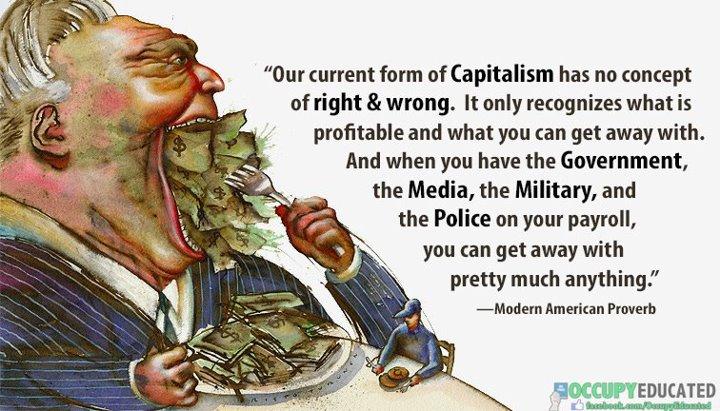
 When one accepts a faith, it is for one to be submitted to the will of his or her creator for the purpose of destiny realization.
When one accepts a faith, it is for one to be submitted to the will of his or her creator for the purpose of destiny realization.
 Strangely, poverty alleviation and reduction seem not to be on the priority list of the state actors at all levels of government.
Strangely, poverty alleviation and reduction seem not to be on the priority list of the state actors at all levels of government.
 The judgment of God shall always come upon parents who fail to bring up their children in the Lord's way.
The judgment of God shall always come upon parents who fail to bring up their children in the Lord's way.
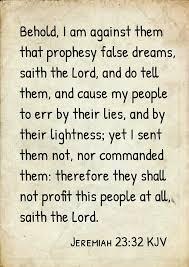 Dreams are planned, pursued, and achieved.
Dreams are planned, pursued, and achieved.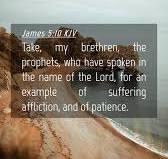
 We want our heroes to remain on their pedestals, so that we who aspire to be like them may hope one day to share in the honor and privilege they enjoy.
We want our heroes to remain on their pedestals, so that we who aspire to be like them may hope one day to share in the honor and privilege they enjoy.
 Titus 2:11-14
Titus 2:11-14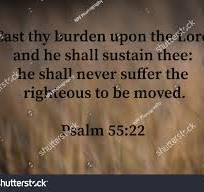 Psalm 55-22
Psalm 55-22
 We want our heroes to remain on their pedestals, so that we who aspire to be like them may hope one day to share in the honor and privilege they enjoy.
We want our heroes to remain on their pedestals, so that we who aspire to be like them may hope one day to share in the honor and privilege they enjoy.
 There is no distinction between the vine and its branches. From the moment it emerges from the soil, the vine begins to spread.
There is no distinction between the vine and its branches. From the moment it emerges from the soil, the vine begins to spread.
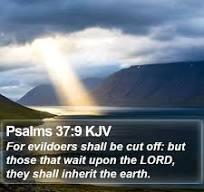 Avoid sowing evil, it only results in destruction. The word of God brings about happiness and peace. The devil is the enemy in the home, who influences all that is evil.
Avoid sowing evil, it only results in destruction. The word of God brings about happiness and peace. The devil is the enemy in the home, who influences all that is evil.
 We should not give room for our faith to falter, for God our creator will continue to guide and protect us.
We should not give room for our faith to falter, for God our creator will continue to guide and protect us.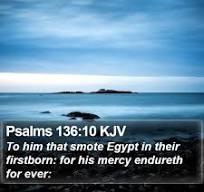
 The guidance and protection of God led God's people out of Egypt to the promised land. Psalm 136
The guidance and protection of God led God's people out of Egypt to the promised land. Psalm 136
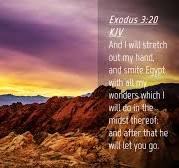 The people were poor and suffered a lot of persecution. But God in His infinite mercy delivered them from the hands of the Egyptians.
The people were poor and suffered a lot of persecution. But God in His infinite mercy delivered them from the hands of the Egyptians.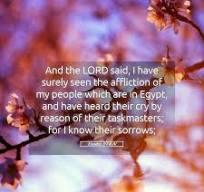
 Let us be persistent in our prayers for God to deliver us from the ''hands of the oppressors''.
Let us be persistent in our prayers for God to deliver us from the ''hands of the oppressors''. 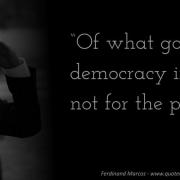 The Philippines was among the poorest countries in the world.
The Philippines was among the poorest countries in the world.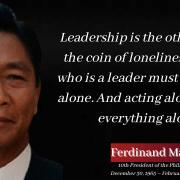
 Donate
Donate
 Our God is able to help us to become better people-responsible, reliable and selfless.
Our God is able to help us to become better people-responsible, reliable and selfless.
 Regardless of your travails and challenges, do not allow your faith to waiver, you will overcome them.
Regardless of your travails and challenges, do not allow your faith to waiver, you will overcome them.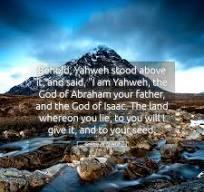
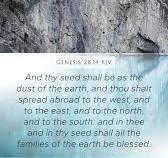 We cannot avoid God's assignment for us. God is everywhere and His love is so great.
We cannot avoid God's assignment for us. God is everywhere and His love is so great. 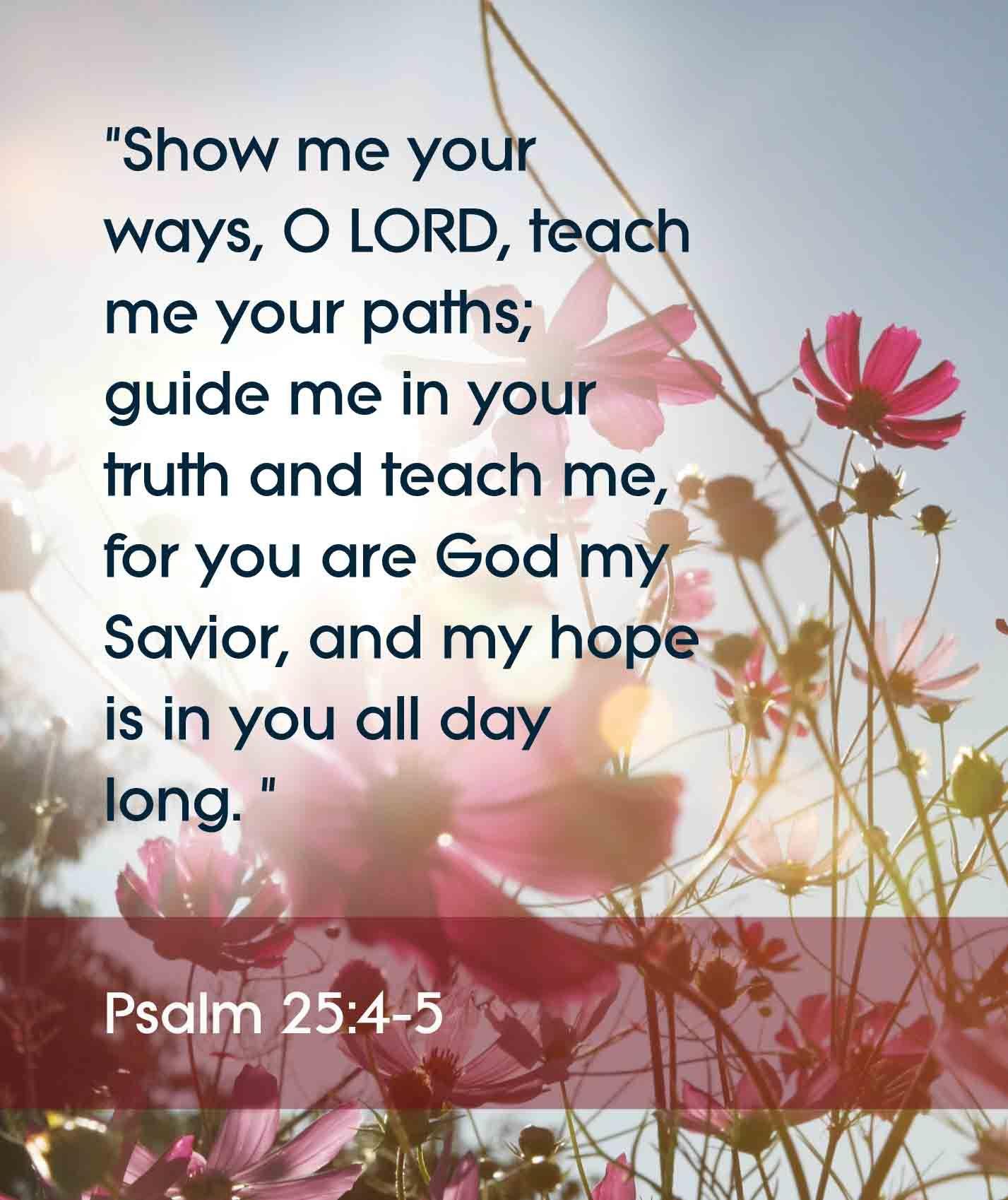 We should not relent in prayers for God to teach us His ways.
We should not relent in prayers for God to teach us His ways. IN
IN 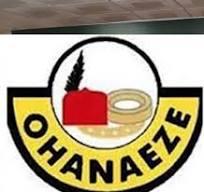
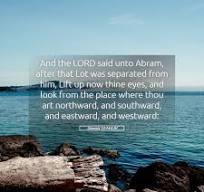 Our God speaks to us in our hearts. He puts good thoughts into our minds and ensures that we have a good disposition.
Our God speaks to us in our hearts. He puts good thoughts into our minds and ensures that we have a good disposition. Let us believe in being rest assured that God our creator will provide for all our needs.
Let us believe in being rest assured that God our creator will provide for all our needs. Let us believe in the constant presence and protection of God.
Let us believe in the constant presence and protection of God. 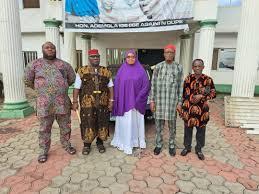
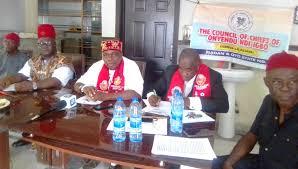 evidence
evidence 
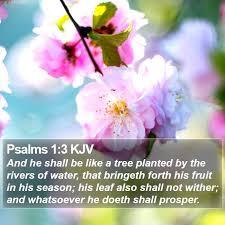 There is great joy in doing the will of God.
There is great joy in doing the will of God. 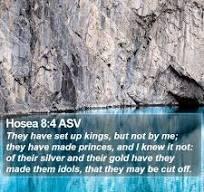
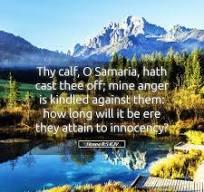 Lord our God fill our hearts with gratitude and help us to live more simply, so that others may simply live.
Lord our God fill our hearts with gratitude and help us to live more simply, so that others may simply live. 
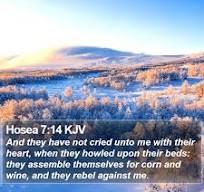 Lord our God help us. We pray to do good to the poor and the stranger, that we may be worthy of being called your people.
Lord our God help us. We pray to do good to the poor and the stranger, that we may be worthy of being called your people. Worship God through hymns of praises.
Worship God through hymns of praises.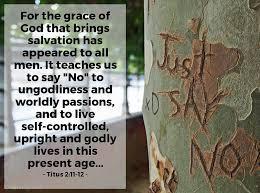 Let us grow in the grace and knowledge of the word of God.
Let us grow in the grace and knowledge of the word of God.
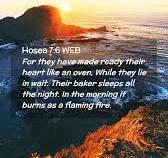
.jpg)
.jpg)

.jpg)
.jpg)
.jpg)
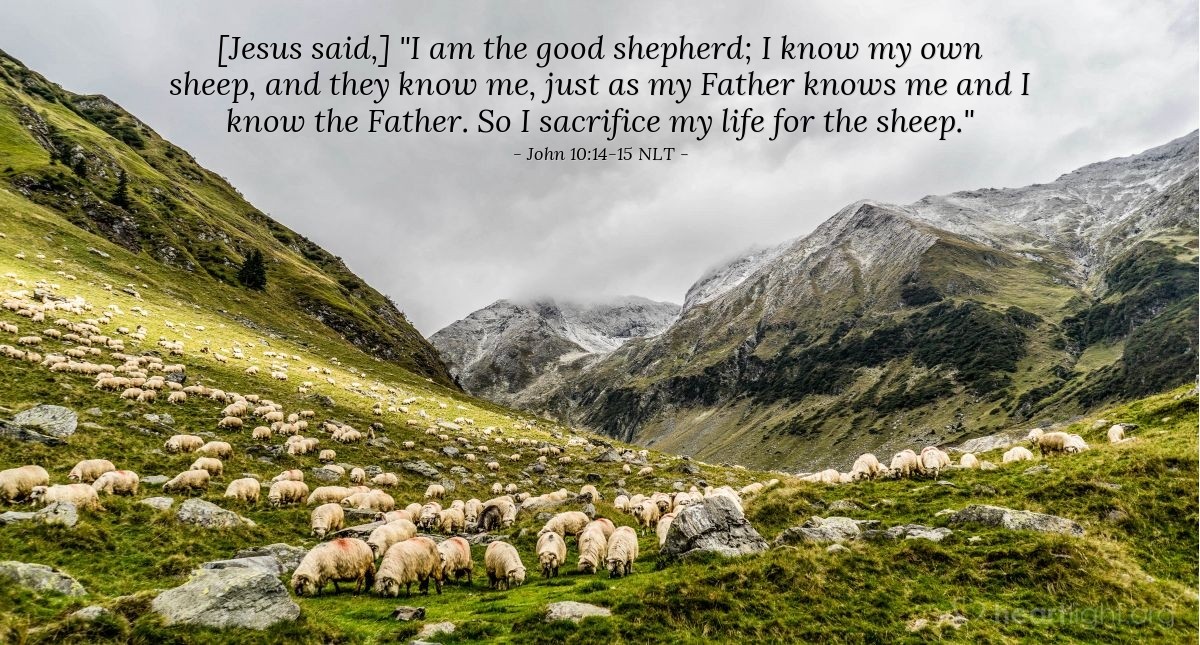
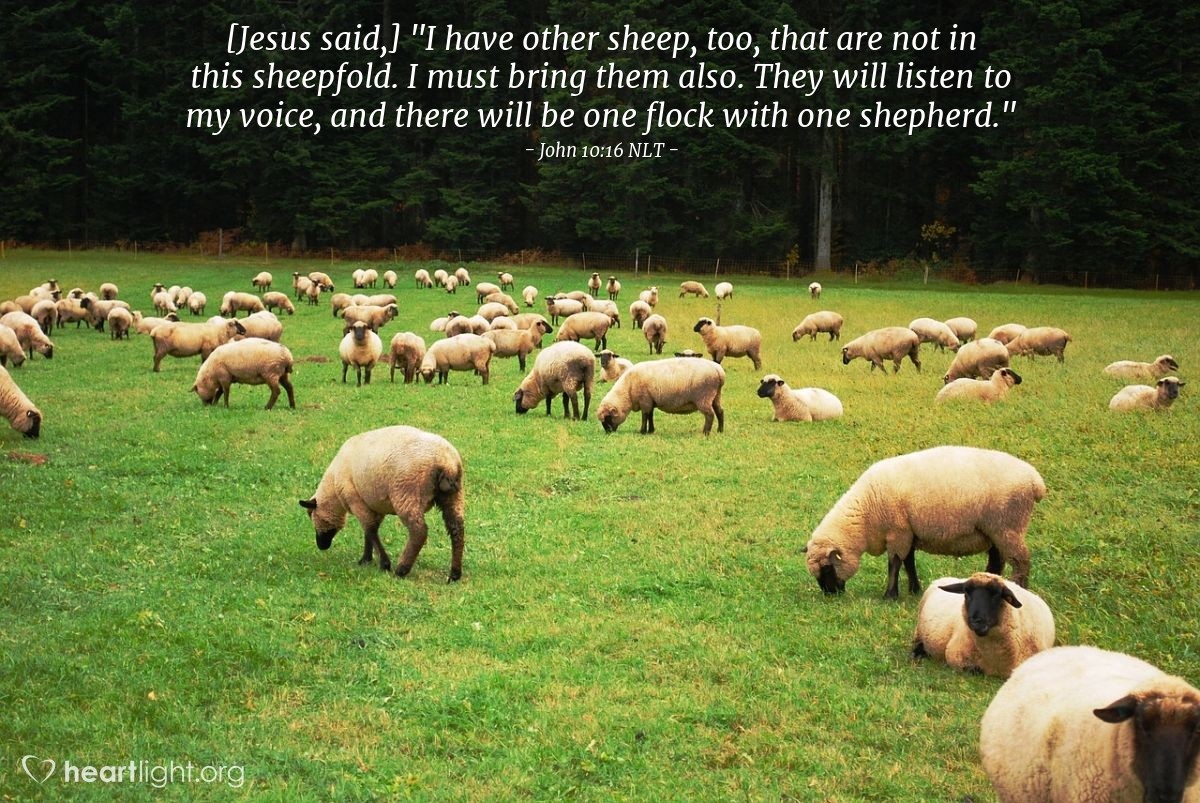
 The vision is redemption for the wayward in the whole community
The vision is redemption for the wayward in the whole community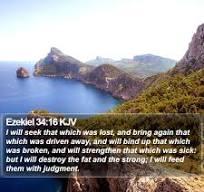 through public care and leadership.
through public care and leadership.


 Chief D.A Adewumi (1924-1994)
Chief D.A Adewumi (1924-1994)
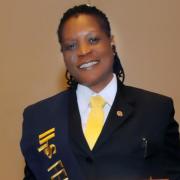 As primary and secondary schools in Nigeria prepare to resume for the third term, the Chief Executive Officer of KEAABS Oil and Gas Limited, Port-Harcourt, Rivers state, Mrs. Hannah Adefunke Mujakperuo, a master’s degree holder and doctoral student, in this interview, advised the government at all levels to do all that is necessary for girls to accomplish.
As primary and secondary schools in Nigeria prepare to resume for the third term, the Chief Executive Officer of KEAABS Oil and Gas Limited, Port-Harcourt, Rivers state, Mrs. Hannah Adefunke Mujakperuo, a master’s degree holder and doctoral student, in this interview, advised the government at all levels to do all that is necessary for girls to accomplish. Those-in-Charge continue to react violently to visible threats to their continued adventure in public office.
Those-in-Charge continue to react violently to visible threats to their continued adventure in public office. The socio-political and economic situation in Nigeria has brought several lessons to the fore in governance. Young Nigerians have now taken to crime to make ends meet. In this interview, the Chief Executive Officer(C.E.O) of Tanimowo Foundation, Dr. Tanimowo Pelumi advises young Nigerians to learn a vocation alongside education.
The socio-political and economic situation in Nigeria has brought several lessons to the fore in governance. Young Nigerians have now taken to crime to make ends meet. In this interview, the Chief Executive Officer(C.E.O) of Tanimowo Foundation, Dr. Tanimowo Pelumi advises young Nigerians to learn a vocation alongside education. 

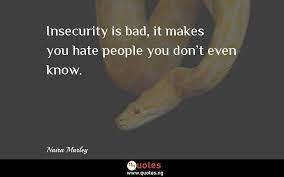

 We should acknowledge the need for God's presence in our lives by choosing to obey God's Word and continually depend on Him.
We should acknowledge the need for God's presence in our lives by choosing to obey God's Word and continually depend on Him.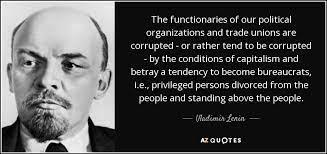 Let God be your guide in all you do, so that you will not be led astray.
Let God be your guide in all you do, so that you will not be led astray. 
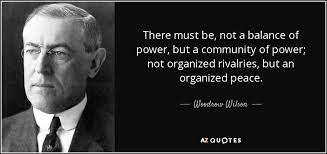
 Watch out for those who rely on deceit for survival, they are everywhere.
Watch out for those who rely on deceit for survival, they are everywhere. 

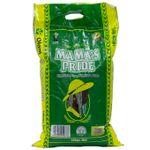
 The word of God has tremendous power to change the direction of the lives of millions of people. Be consistent in praying and sharing the gospel with others. God's word saves.
The word of God has tremendous power to change the direction of the lives of millions of people. Be consistent in praying and sharing the gospel with others. God's word saves.
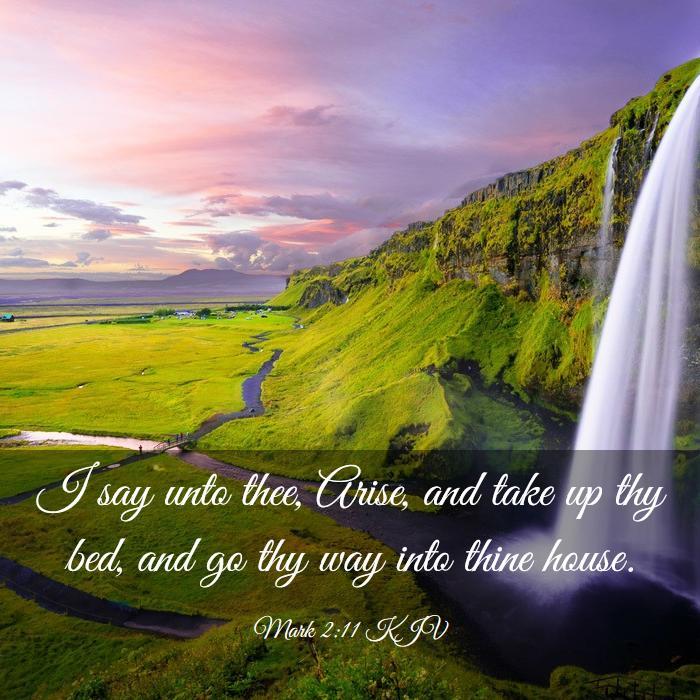

 Parents and guradians should care for their children and wards.
Parents and guradians should care for their children and wards.  Get started with a venture by taking a few right decisions and consolidating on some learning.
Get started with a venture by taking a few right decisions and consolidating on some learning.
 Let us endeavor to have a good understanding of all that has been said, before we react-to avoid committing sin. ways.
Let us endeavor to have a good understanding of all that has been said, before we react-to avoid committing sin. ways.  Our savior always caters for our needs in all situations. We should also cater for needs of others because the Lord cares for us.
Our savior always caters for our needs in all situations. We should also cater for needs of others because the Lord cares for us.  Be very familiar with the word of God and also, go further to put it practice for you to receive the abundant blessings and protection of God.
Be very familiar with the word of God and also, go further to put it practice for you to receive the abundant blessings and protection of God. In this age of evil characterized by unbelievable and condmenable circumstances, our faith in God will take us through life.
In this age of evil characterized by unbelievable and condmenable circumstances, our faith in God will take us through life.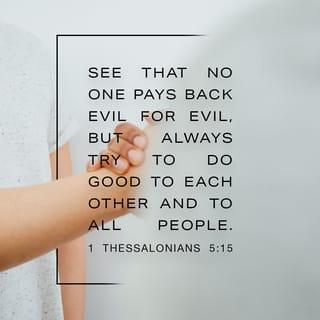 Avoid being led astray to do evil, but always thread the path of good deeds and good will be with you at all times.
Avoid being led astray to do evil, but always thread the path of good deeds and good will be with you at all times.  Let us cultivate the habit of goiving thanks to God in every situation. Learning the lesson of gratitude reduces the negative effects of our expriences in all situation.
Let us cultivate the habit of goiving thanks to God in every situation. Learning the lesson of gratitude reduces the negative effects of our expriences in all situation.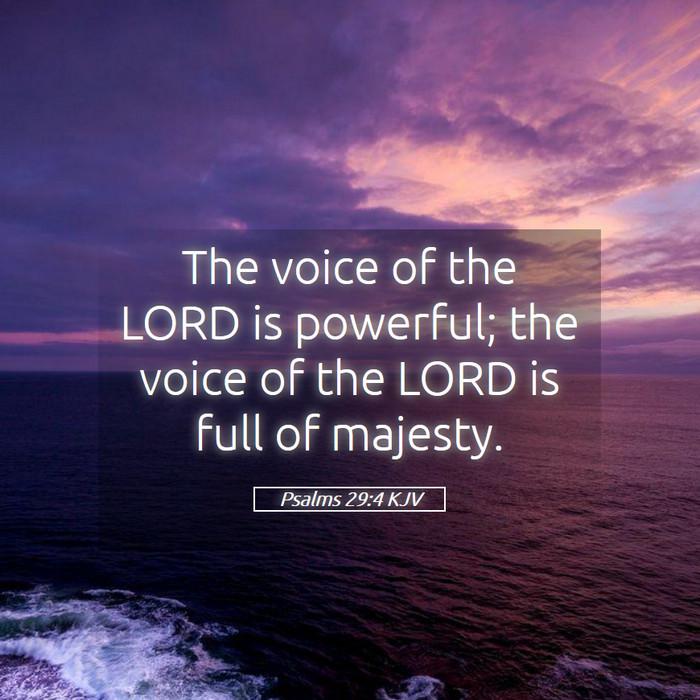 When we listen carefully with the ears of faith, God reveals His presence in awe inspiring ways that are unmistakable.
When we listen carefully with the ears of faith, God reveals His presence in awe inspiring ways that are unmistakable.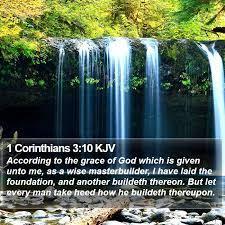 Let us build our lives on Jesus Christ, the solid foundation of good works, obedience and faith, so that our lives will have a lasting value.
Let us build our lives on Jesus Christ, the solid foundation of good works, obedience and faith, so that our lives will have a lasting value.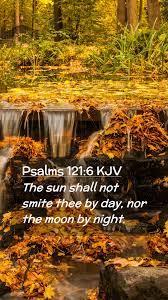 Our God protects us all the time-in the day and in the night.
Our God protects us all the time-in the day and in the night. Let us strive to pleae the Lord and He will condition us to control our physical desires whihc are sin-inclined.
Let us strive to pleae the Lord and He will condition us to control our physical desires whihc are sin-inclined. When people abandon us at times of need, God will never abandon us.
When people abandon us at times of need, God will never abandon us. The funding of education is a major challenge in Nigeria.
The funding of education is a major challenge in Nigeria. Nigerians need to be grateful to God who gave us the opportunity to have a successful election exercise that eventually produced a President Elect against all odds and without fatalities.
Nigerians need to be grateful to God who gave us the opportunity to have a successful election exercise that eventually produced a President Elect against all odds and without fatalities.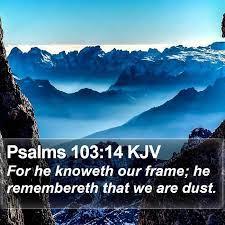 God our creator knows our thoughts,difficulities and needs. Let us rely on HIM in all situations.
God our creator knows our thoughts,difficulities and needs. Let us rely on HIM in all situations.  The Oyo state council of the Nigeria Labor Congress has declared that some of its members decided to feature prominently in the second term campaign of the state Governor as a show of appreciation for meeting their demands.
The Oyo state council of the Nigeria Labor Congress has declared that some of its members decided to feature prominently in the second term campaign of the state Governor as a show of appreciation for meeting their demands. 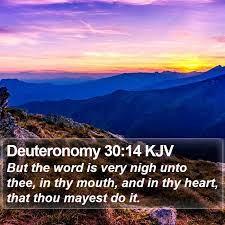 God always speaks to us through His Word, through the apostles and other faithful servants of old. Deuteronomy 30 : 1-20
God always speaks to us through His Word, through the apostles and other faithful servants of old. Deuteronomy 30 : 1-20  When confronted with difficult and hard times, stiff challenges and major disappointments, identify and hold on to those who offer encouragement and hope, if at all, they are brothers, sisters or friends.
When confronted with difficult and hard times, stiff challenges and major disappointments, identify and hold on to those who offer encouragement and hope, if at all, they are brothers, sisters or friends.  Seek the mercy, grace nd wisdom of God to achieve your spiritual potential and triumph in all spheres of human endeavor.
Seek the mercy, grace nd wisdom of God to achieve your spiritual potential and triumph in all spheres of human endeavor.  He will change you, once you submit to Him today
He will change you, once you submit to Him today When enemies are very many on your path, God will assist you to demobilize them.
When enemies are very many on your path, God will assist you to demobilize them. 

 Presently, all over the world, the debate is on the relevant status of religion in the present era of moral decadence. It is surprising to see the defectiveness of the rule of law or sharia in the developed world as it is measurable through a high degree of orderliness and productivity. It is equally surprising to note that religion is never a dominant factor in these countries. Objective observers from Islamic perspectives submit that in this context, Islam by the scripture is at work in the developed world with low or no number of Muslim population, but in countries where religion dominates to determine the politics, economic and social affairs of the people; Muslims dominate without Islamic tenets via the stand of the scripture portending no Islam. People erroneously conclude that religion has failed humanity, whereas it is mankind that treats religion with impunity to the detriment of the expected benefits of offering just worship. The common factor for the lapses is falsehood in place of truth. If we are to go by the dictates of the Holy Quran 2 : 42-44, ''Cover no Truth with falsehood, nor conceal the Truth when ye know what it is. And be steadfast in prayer, give zakaat and bow down in worship. Do ye enjoy right conduct in the people, and forget to practise it yourselves, and yet ye study scripture? Do ye not understand?''
Presently, all over the world, the debate is on the relevant status of religion in the present era of moral decadence. It is surprising to see the defectiveness of the rule of law or sharia in the developed world as it is measurable through a high degree of orderliness and productivity. It is equally surprising to note that religion is never a dominant factor in these countries. Objective observers from Islamic perspectives submit that in this context, Islam by the scripture is at work in the developed world with low or no number of Muslim population, but in countries where religion dominates to determine the politics, economic and social affairs of the people; Muslims dominate without Islamic tenets via the stand of the scripture portending no Islam. People erroneously conclude that religion has failed humanity, whereas it is mankind that treats religion with impunity to the detriment of the expected benefits of offering just worship. The common factor for the lapses is falsehood in place of truth. If we are to go by the dictates of the Holy Quran 2 : 42-44, ''Cover no Truth with falsehood, nor conceal the Truth when ye know what it is. And be steadfast in prayer, give zakaat and bow down in worship. Do ye enjoy right conduct in the people, and forget to practise it yourselves, and yet ye study scripture? Do ye not understand?''
 Meeting together with other believers, ensures that we honor the Lord, grow in our faith, and give a strong witness to the world.
Meeting together with other believers, ensures that we honor the Lord, grow in our faith, and give a strong witness to the world.  Unfortunately for Nigeria's basic education, there is a dearth of facility to drive Technical Education for our students to be technically sound to meet up with the challenges of technology advancement that drives the present ady knowledge economy.
Unfortunately for Nigeria's basic education, there is a dearth of facility to drive Technical Education for our students to be technically sound to meet up with the challenges of technology advancement that drives the present ady knowledge economy. Organization and professional ethics are important elements of governance or corporate governance.
Organization and professional ethics are important elements of governance or corporate governance. The government and every proprietor must invest heavily in the functional education of our children despite the current trend of development that dwells on global competitiveness and global best practices through such orientation, which will give learners and graduates of every school a wider view of the world where peace and development will dominate a purposeful educational goal.
The government and every proprietor must invest heavily in the functional education of our children despite the current trend of development that dwells on global competitiveness and global best practices through such orientation, which will give learners and graduates of every school a wider view of the world where peace and development will dominate a purposeful educational goal. The antidote to all forms of insecurity is a functional democracy run through high regards for fairness, justice and equity.
The antidote to all forms of insecurity is a functional democracy run through high regards for fairness, justice and equity.
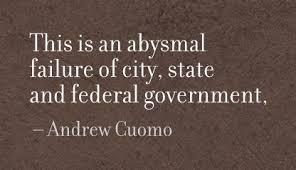 Christians in Nigeria have been called upon to use the Easter celebration to ceaselessly pray to God to ned the killings, ritual killings, and other violent crimes across Nigeria.
Christians in Nigeria have been called upon to use the Easter celebration to ceaselessly pray to God to ned the killings, ritual killings, and other violent crimes across Nigeria. Saturday, April 9th
Saturday, April 9th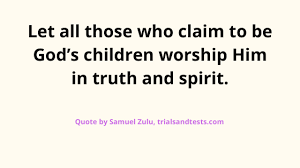
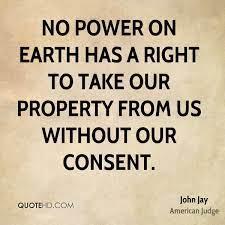

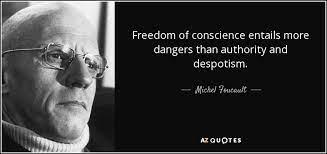


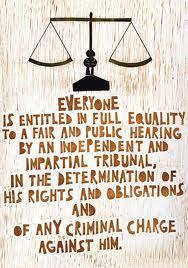
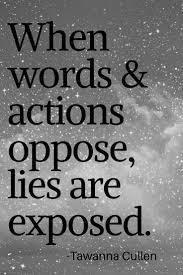
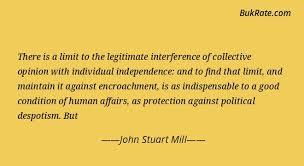
 Knowledge is either acquired or imbued by the endowment. Knowledge about things is fundamental to human growth and development and it has to do with the need for safety and security consciousness with growth.
Knowledge is either acquired or imbued by the endowment. Knowledge about things is fundamental to human growth and development and it has to do with the need for safety and security consciousness with growth.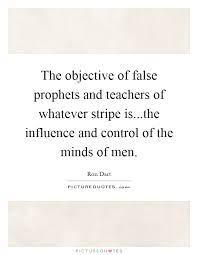





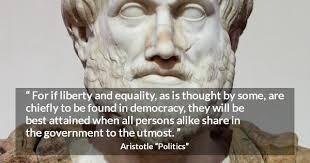
 For over a long period of time the Landlords and Tenants Association, community leaders, criminally-minded residents, some unscrupulous officers, and rank and file of the Police have ensured that various categories of criminals in Molusi, Solanke, Oyegbami, Olorunsogo, Molete, Oshodi, Scout camp, Aluko, Felele straight and Rab, among several other communities in Oyo state perpetrate crime with impunity.
For over a long period of time the Landlords and Tenants Association, community leaders, criminally-minded residents, some unscrupulous officers, and rank and file of the Police have ensured that various categories of criminals in Molusi, Solanke, Oyegbami, Olorunsogo, Molete, Oshodi, Scout camp, Aluko, Felele straight and Rab, among several other communities in Oyo state perpetrate crime with impunity.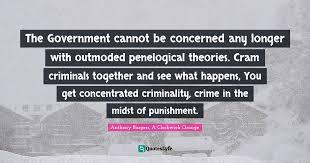 The discussion on the lip of every Nigerian, presently, is the embarrassing absence of the visible impact of the government at all levels on their lives.
The discussion on the lip of every Nigerian, presently, is the embarrassing absence of the visible impact of the government at all levels on their lives.

 Wednesday 28th April
Wednesday 28th April
 Anger is an inborn quality that is easily expressed through reflections over matters when alone or as an outburst of reactions to people's actions considered not acceptable to one's system of perspective.
Anger is an inborn quality that is easily expressed through reflections over matters when alone or as an outburst of reactions to people's actions considered not acceptable to one's system of perspective.

 Contentment achieved through extrinsic perspective has to do with human activities in acquiring wealth to meet up with the needs in the areas of economic, environment and the kind of people that surrounds one from friends and family perspective, whose character and general attitudinal disposition aligns with one's concept of how life should be.
Contentment achieved through extrinsic perspective has to do with human activities in acquiring wealth to meet up with the needs in the areas of economic, environment and the kind of people that surrounds one from friends and family perspective, whose character and general attitudinal disposition aligns with one's concept of how life should be.
 By the nature of our creation as mankind, we will continue to live by the sense of want using the yardstick of human physiological needs for his or her wellness.
By the nature of our creation as mankind, we will continue to live by the sense of want using the yardstick of human physiological needs for his or her wellness. The declaration of the Nigeria Immigration Service(NIS) relating to armed men within Nigeria is not only misleading but also devoid of visible professionalism.
The declaration of the Nigeria Immigration Service(NIS) relating to armed men within Nigeria is not only misleading but also devoid of visible professionalism. The difference between human and animal kingdoms has a divided line of unguarded freedom and organized interpersonal relationships in the area of mating the two kingdoms have consideration for stages of development, minor stage considered as the immatured and upper cadre of puberty considered as the matured stage.
The difference between human and animal kingdoms has a divided line of unguarded freedom and organized interpersonal relationships in the area of mating the two kingdoms have consideration for stages of development, minor stage considered as the immatured and upper cadre of puberty considered as the matured stage.